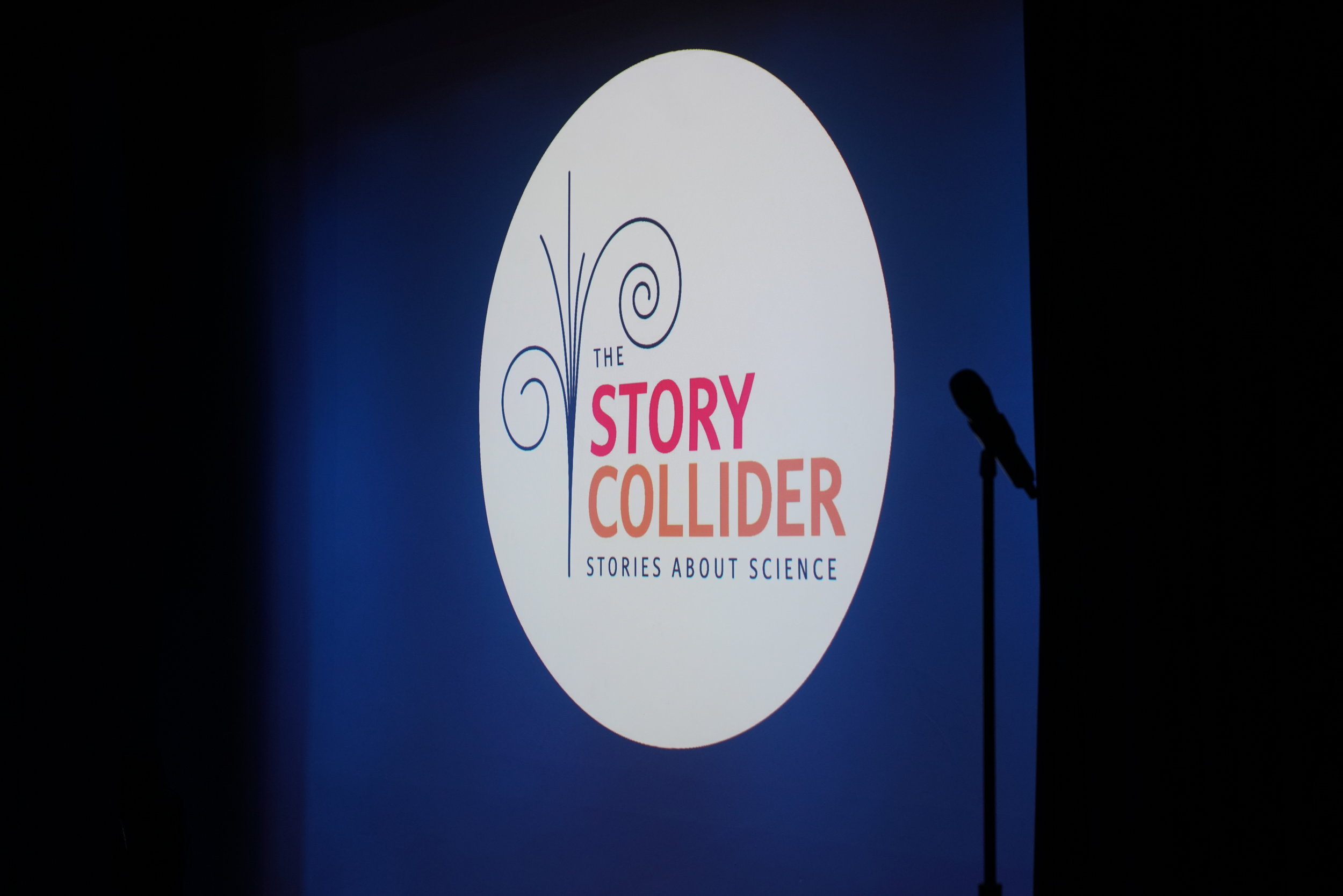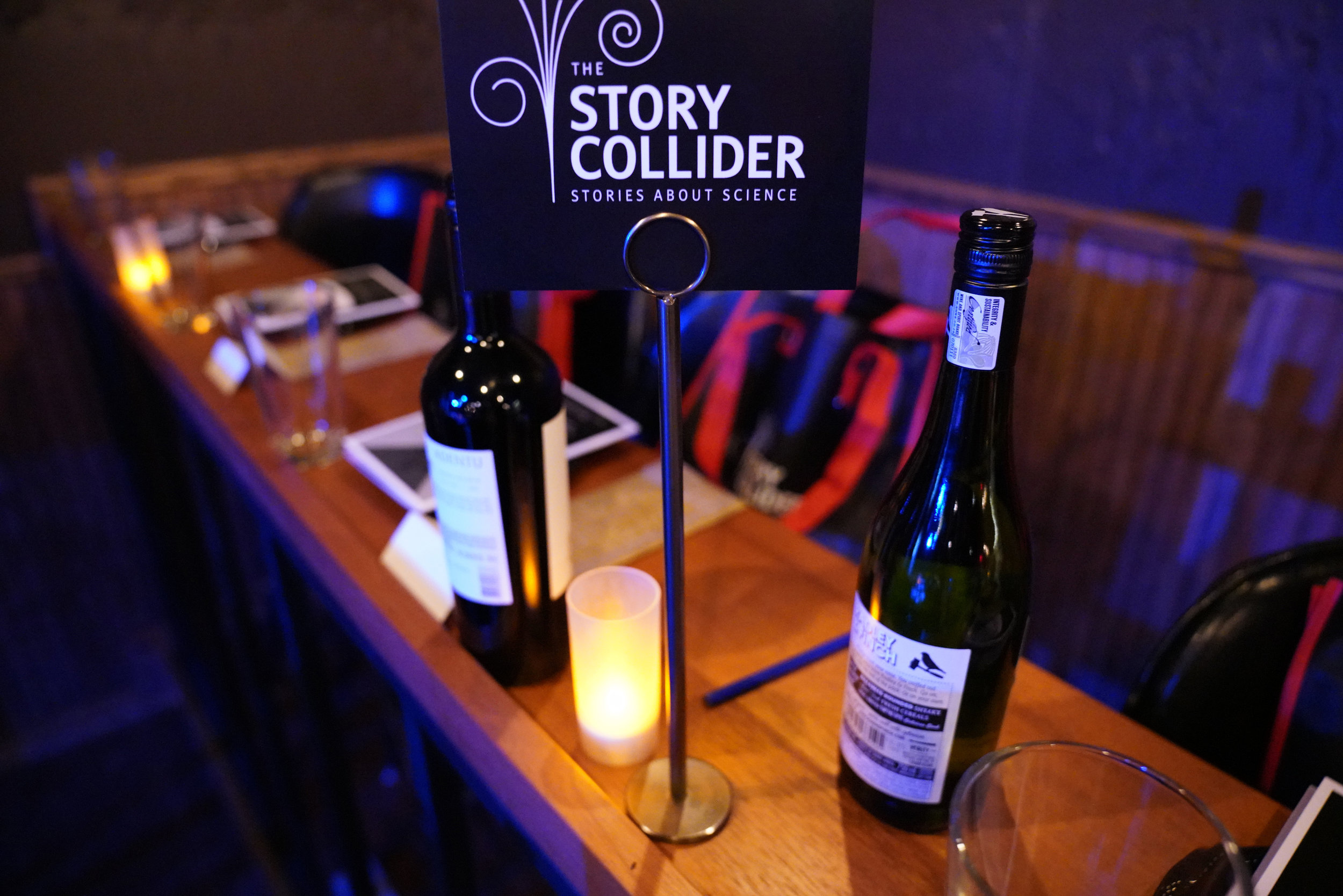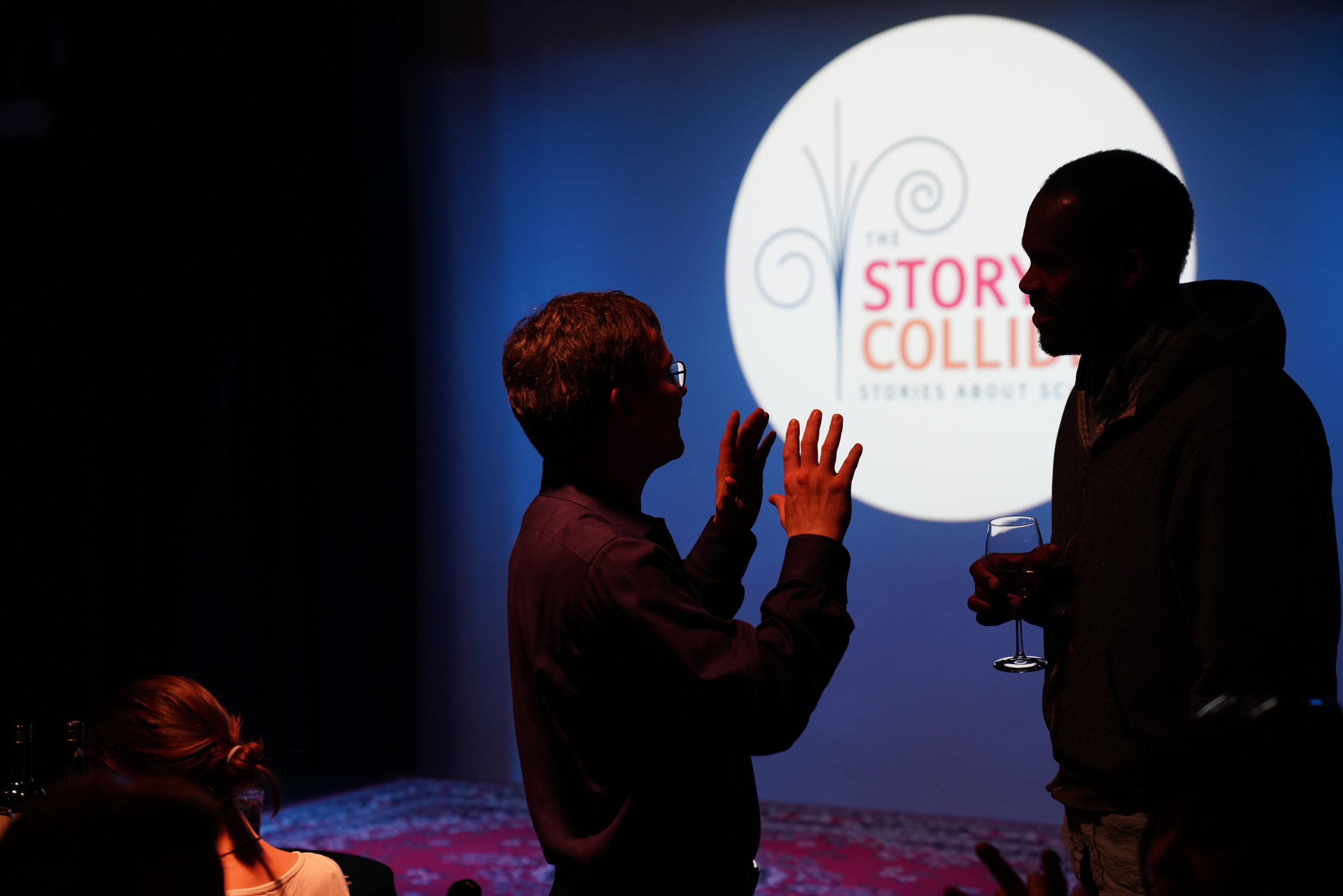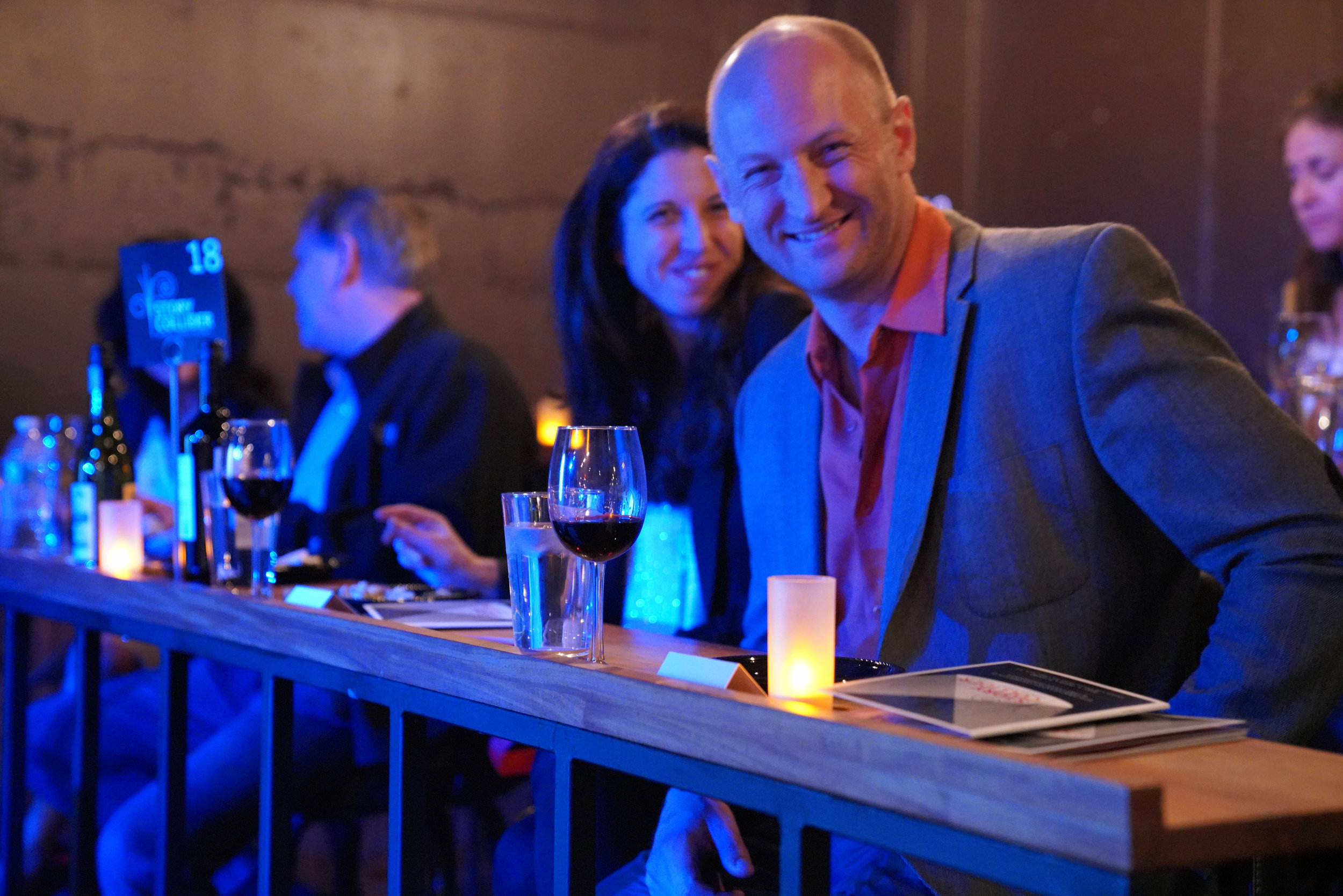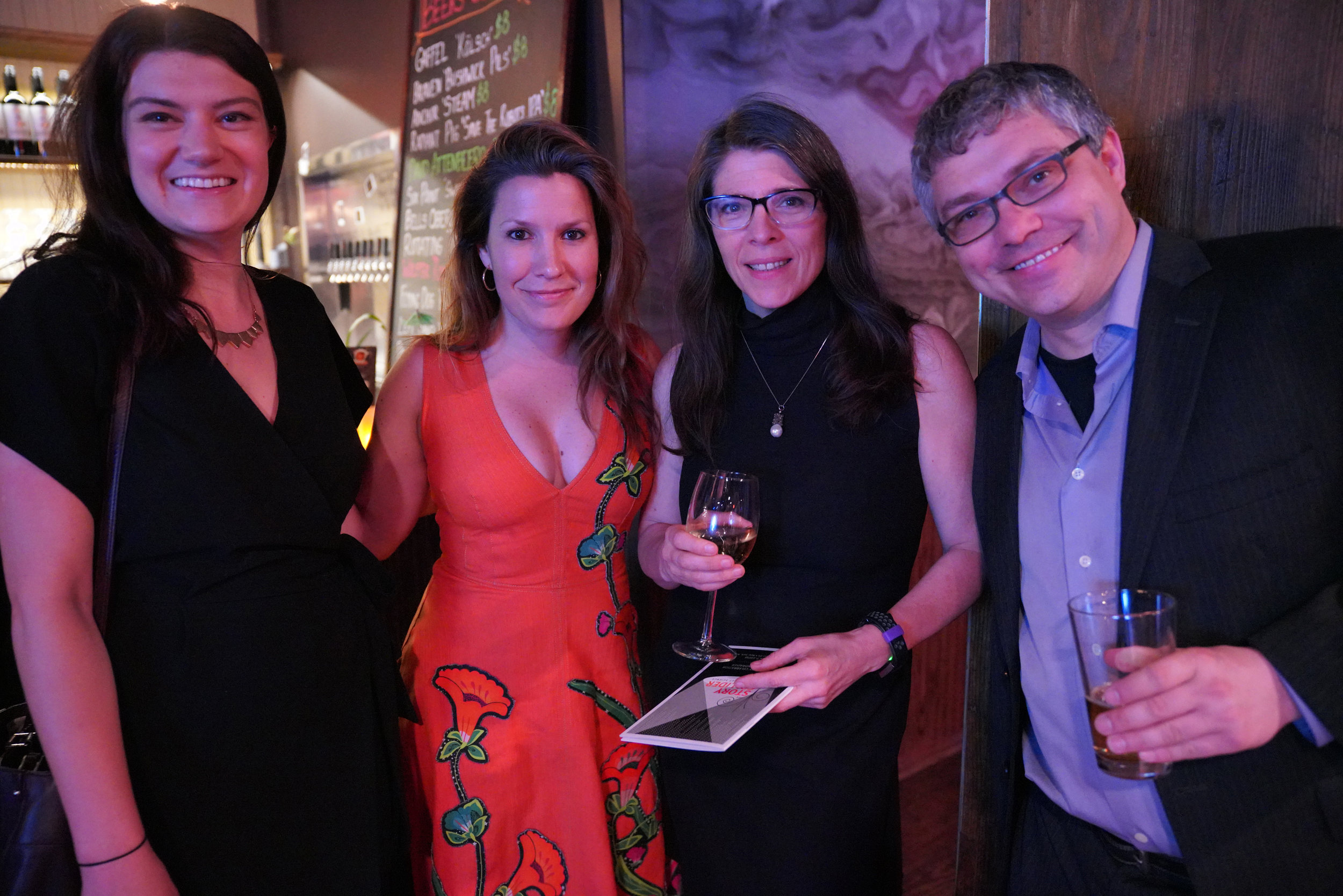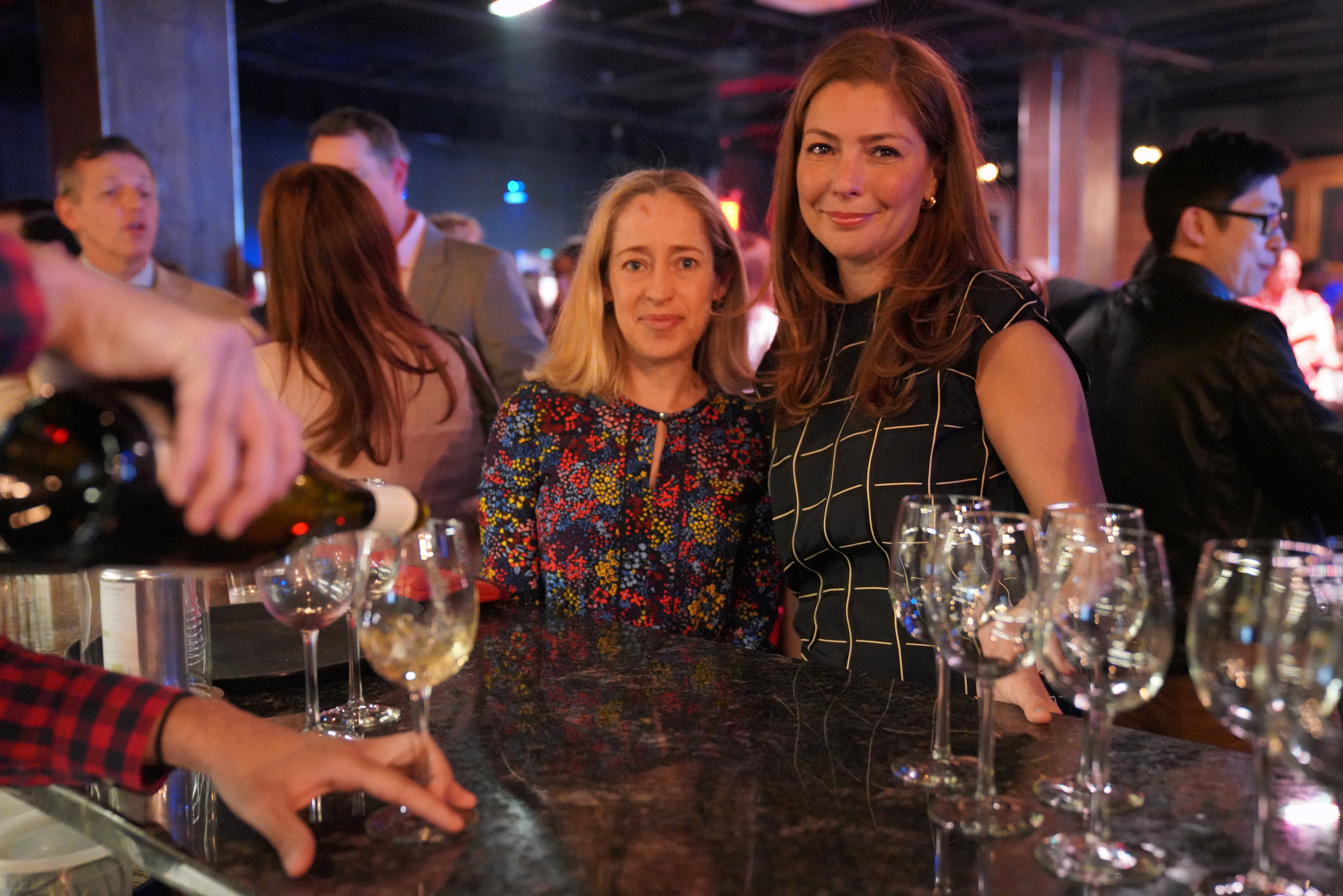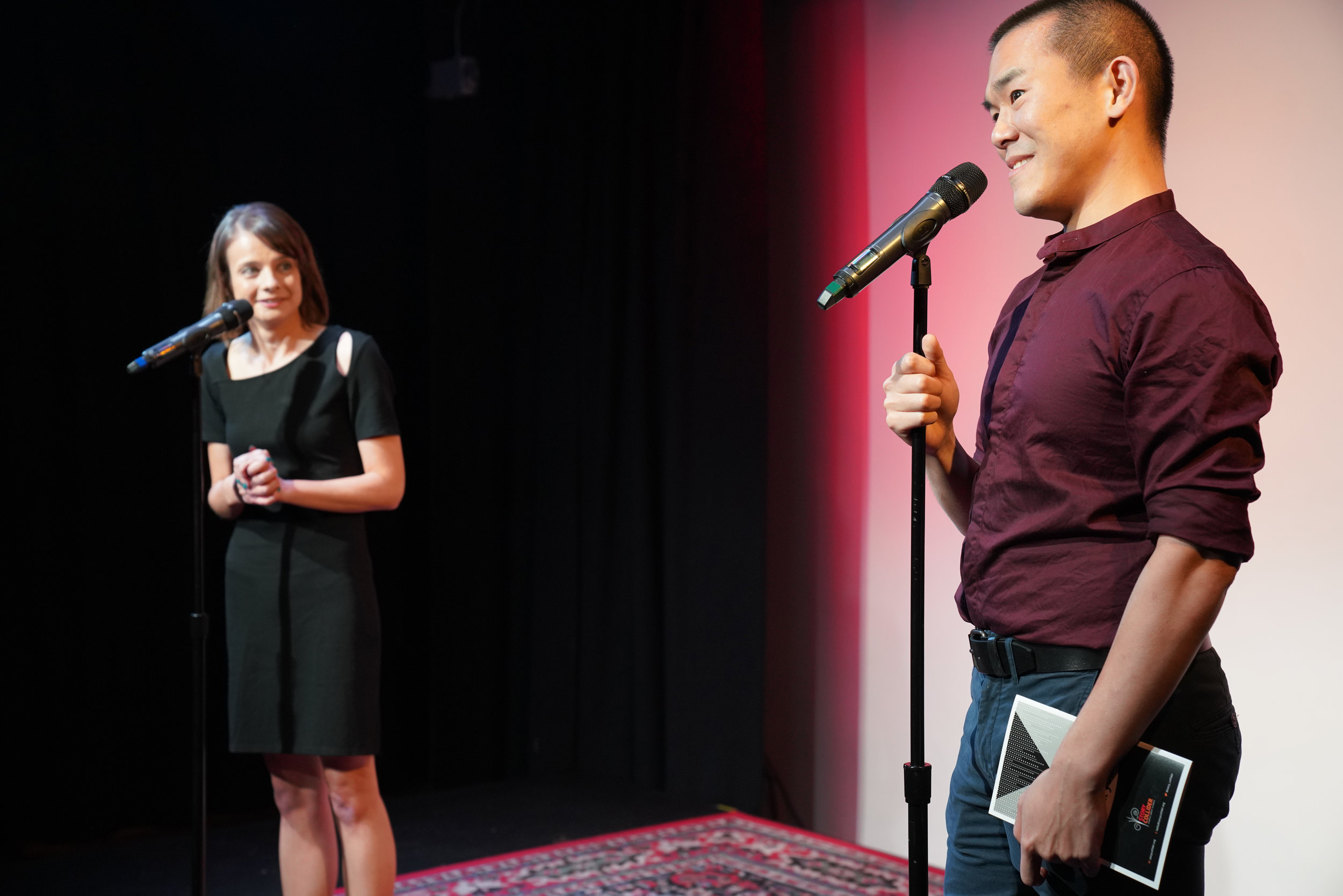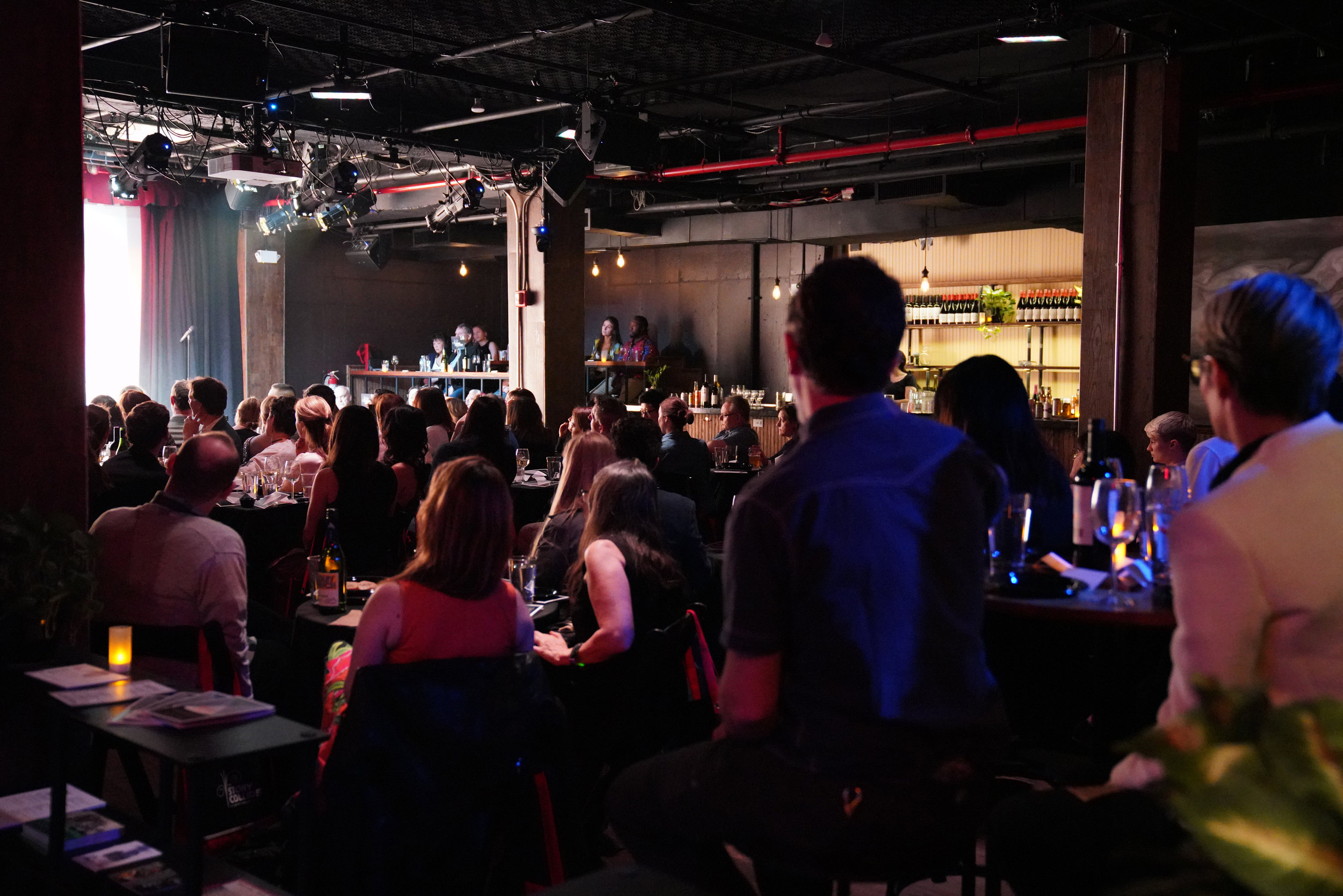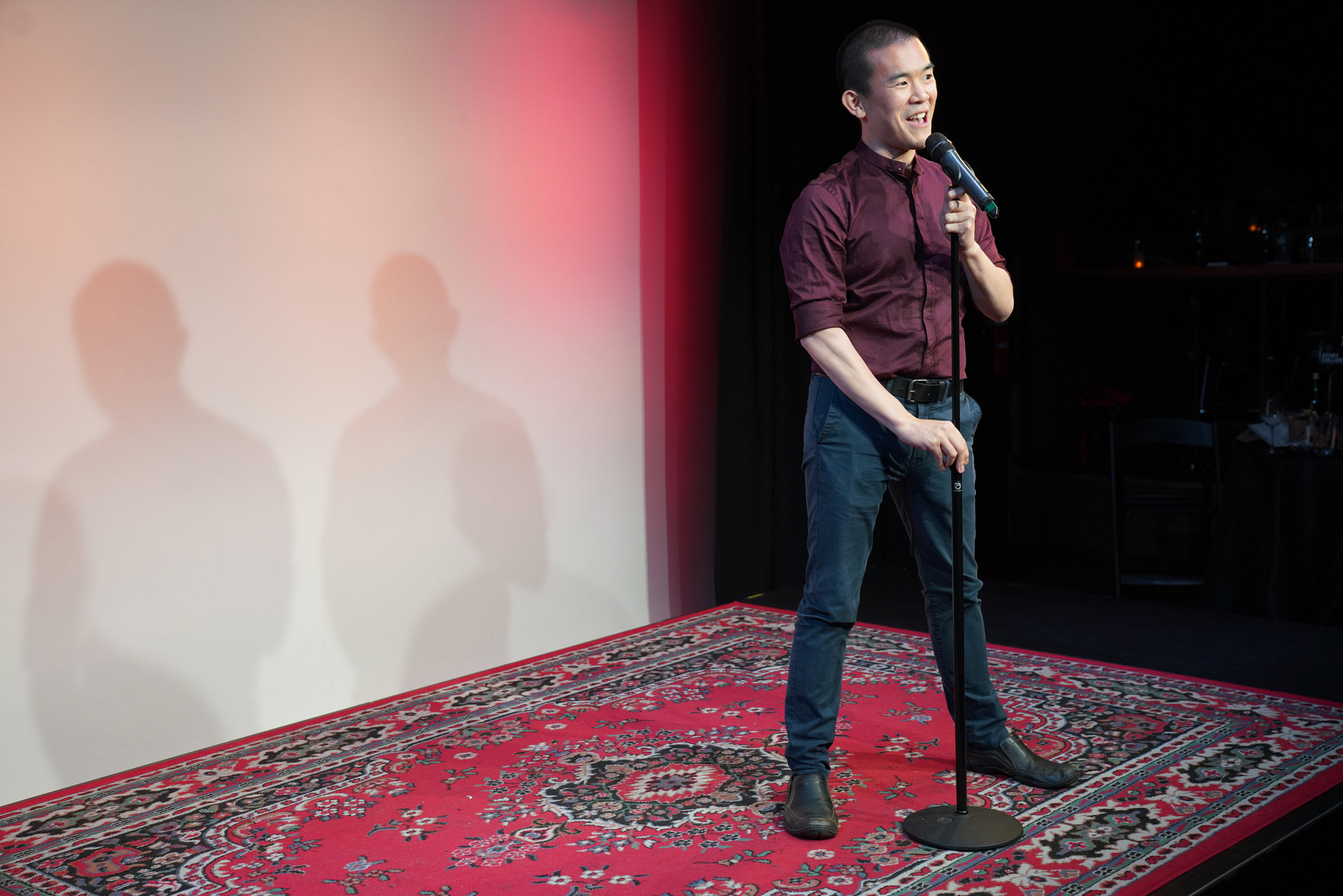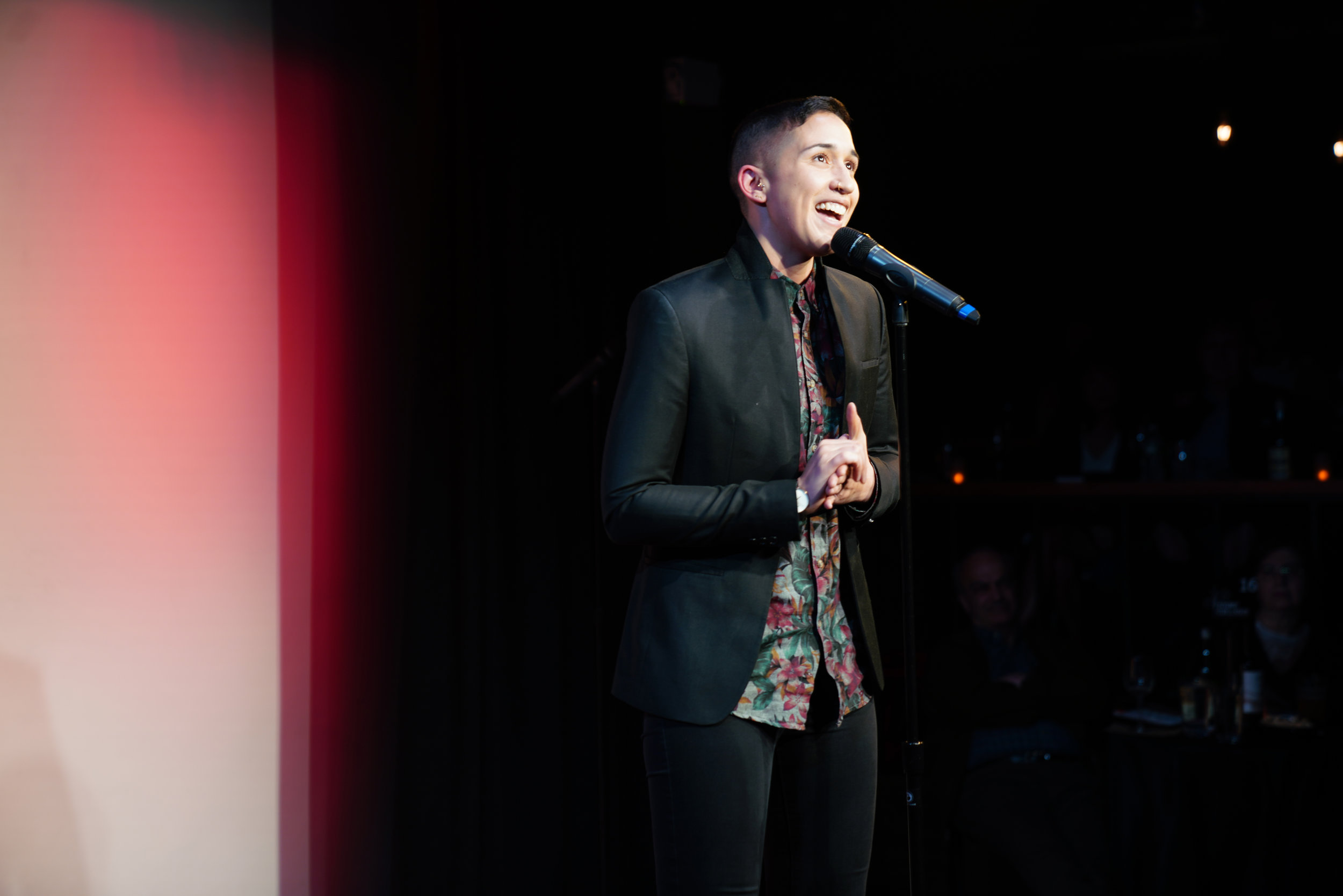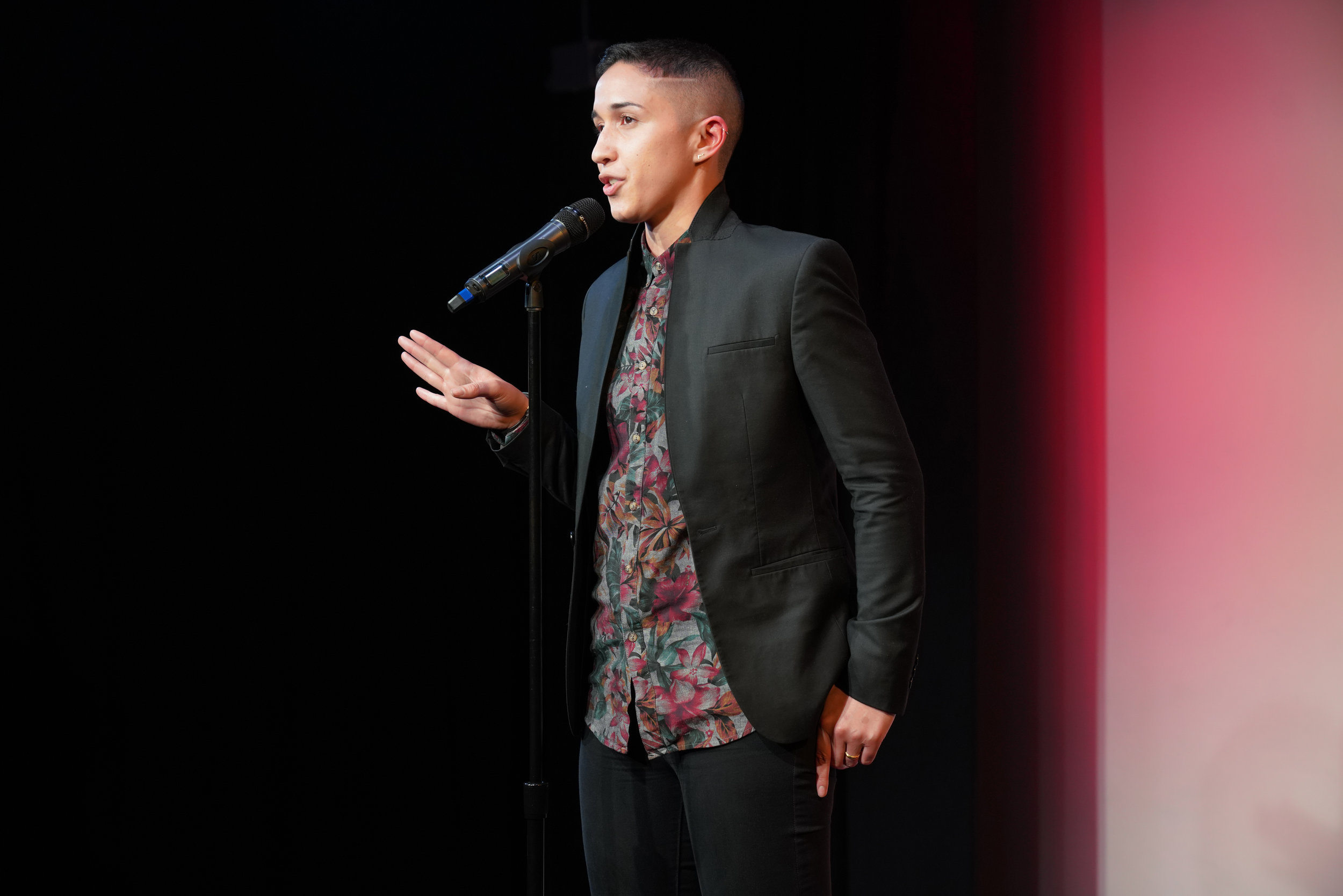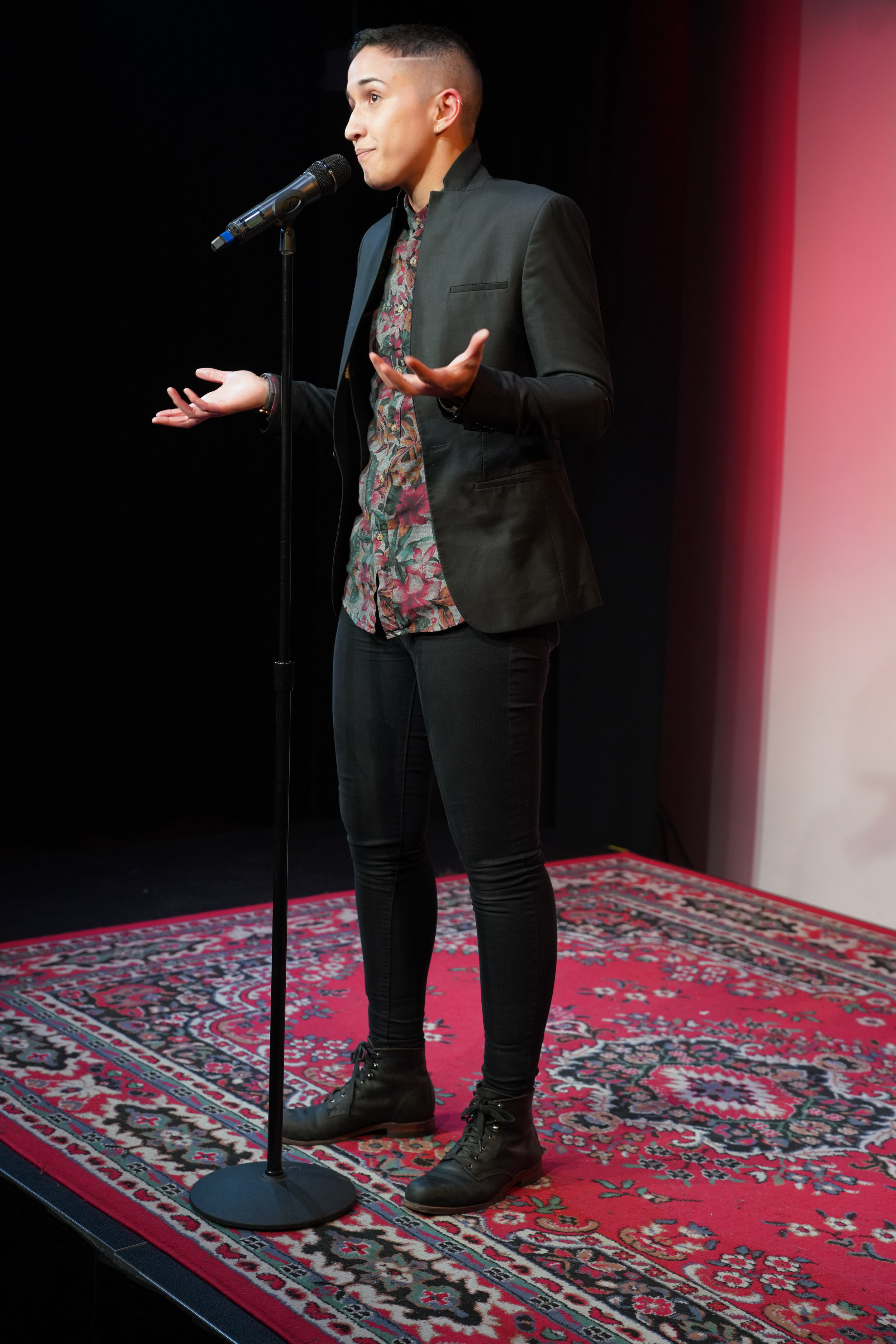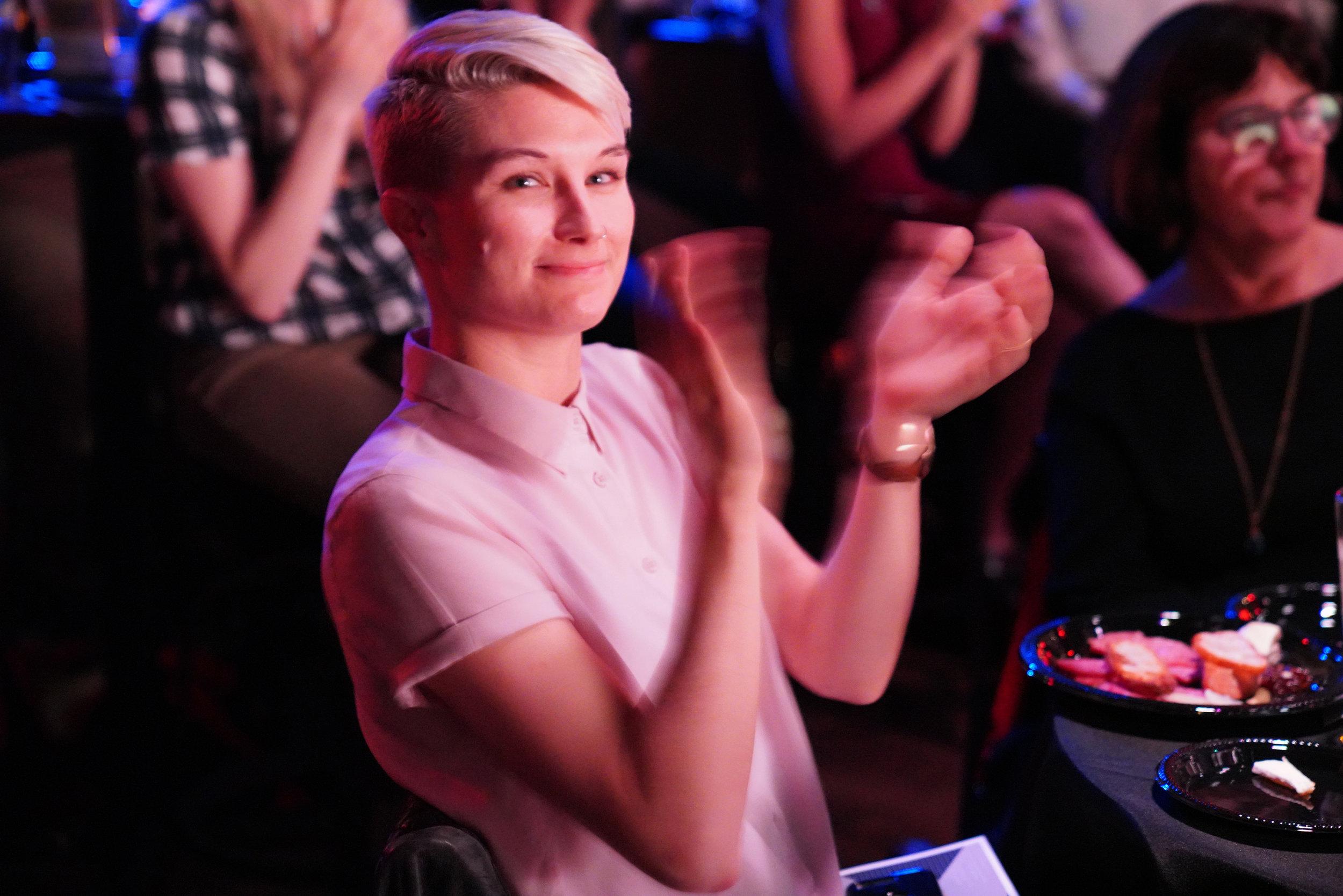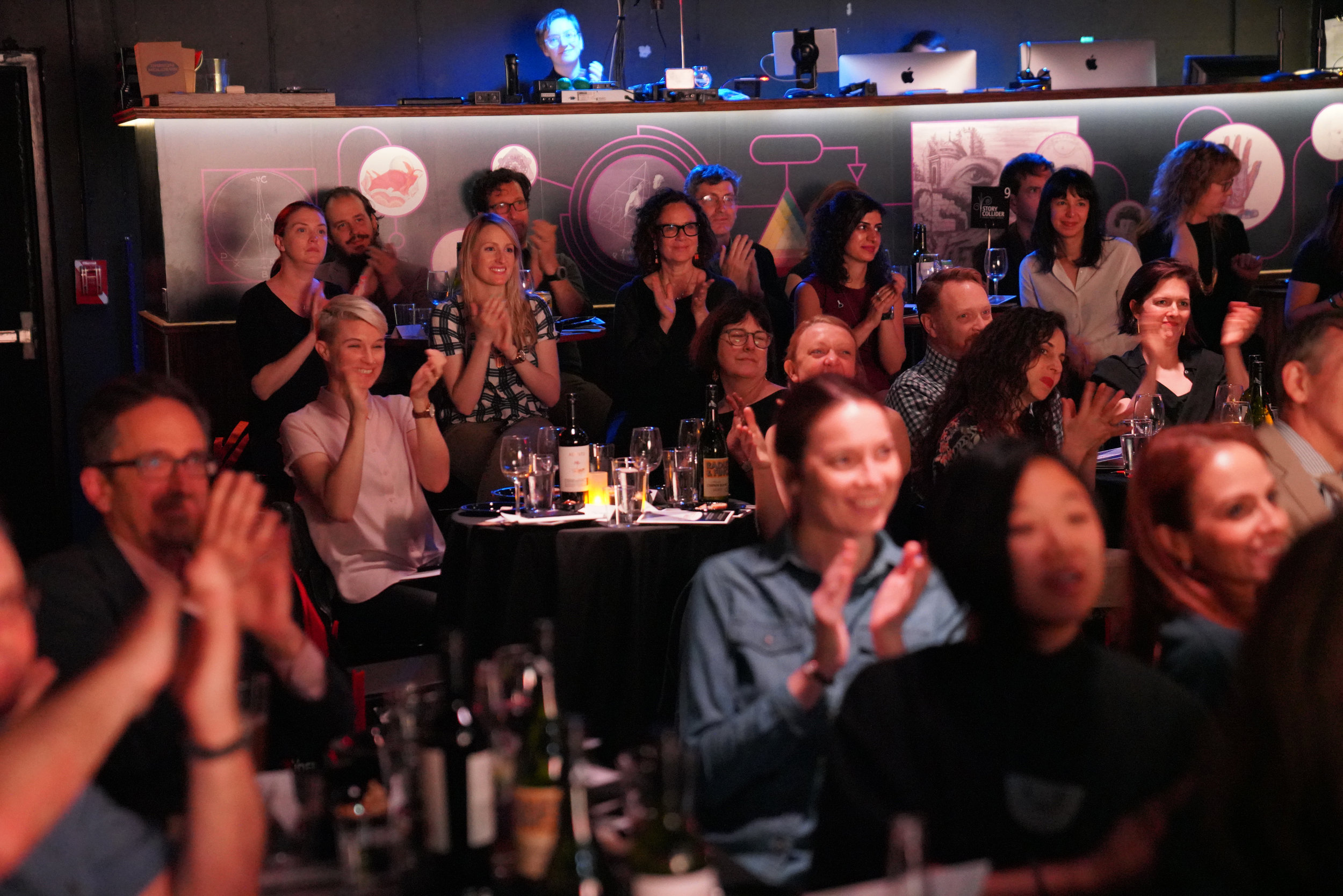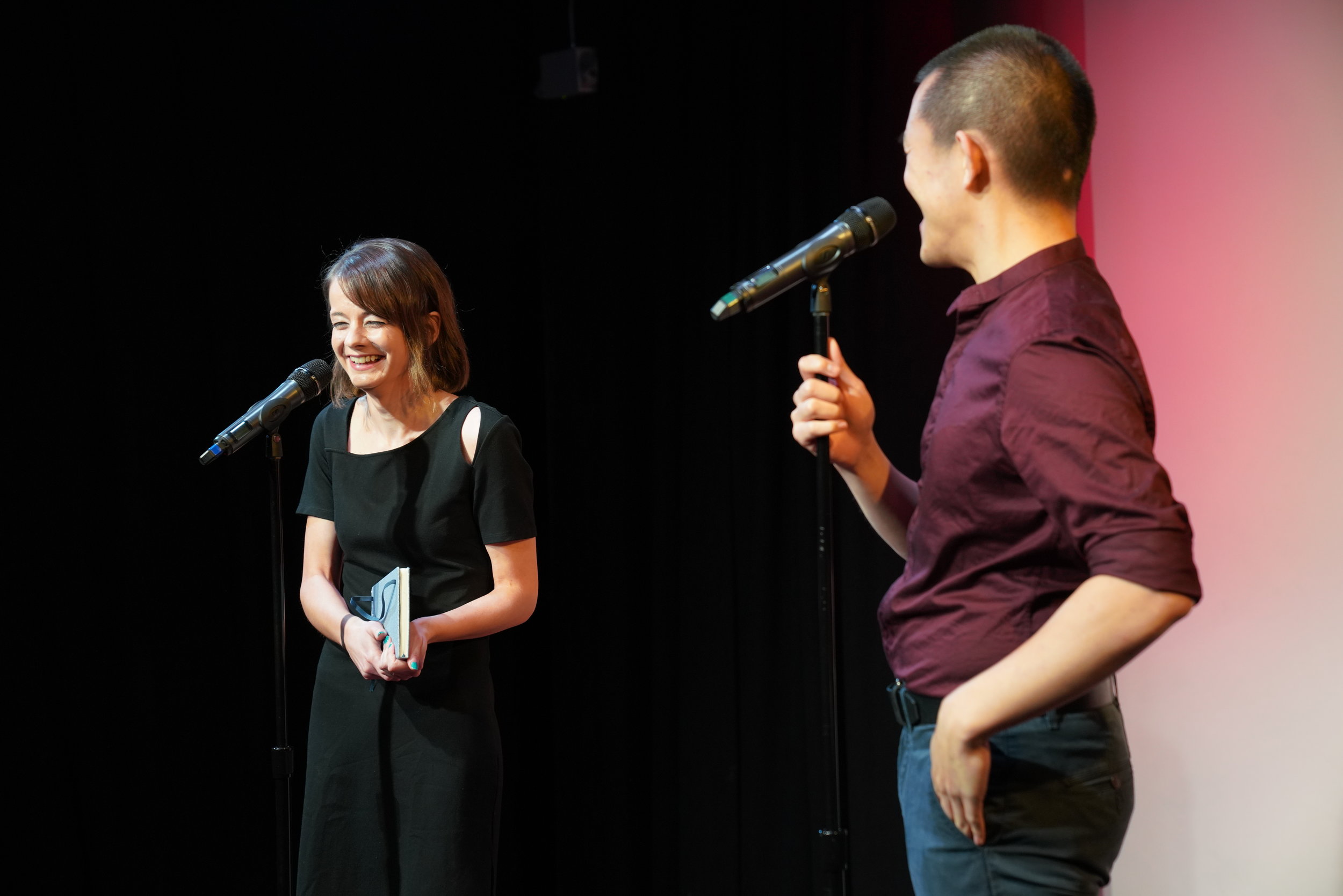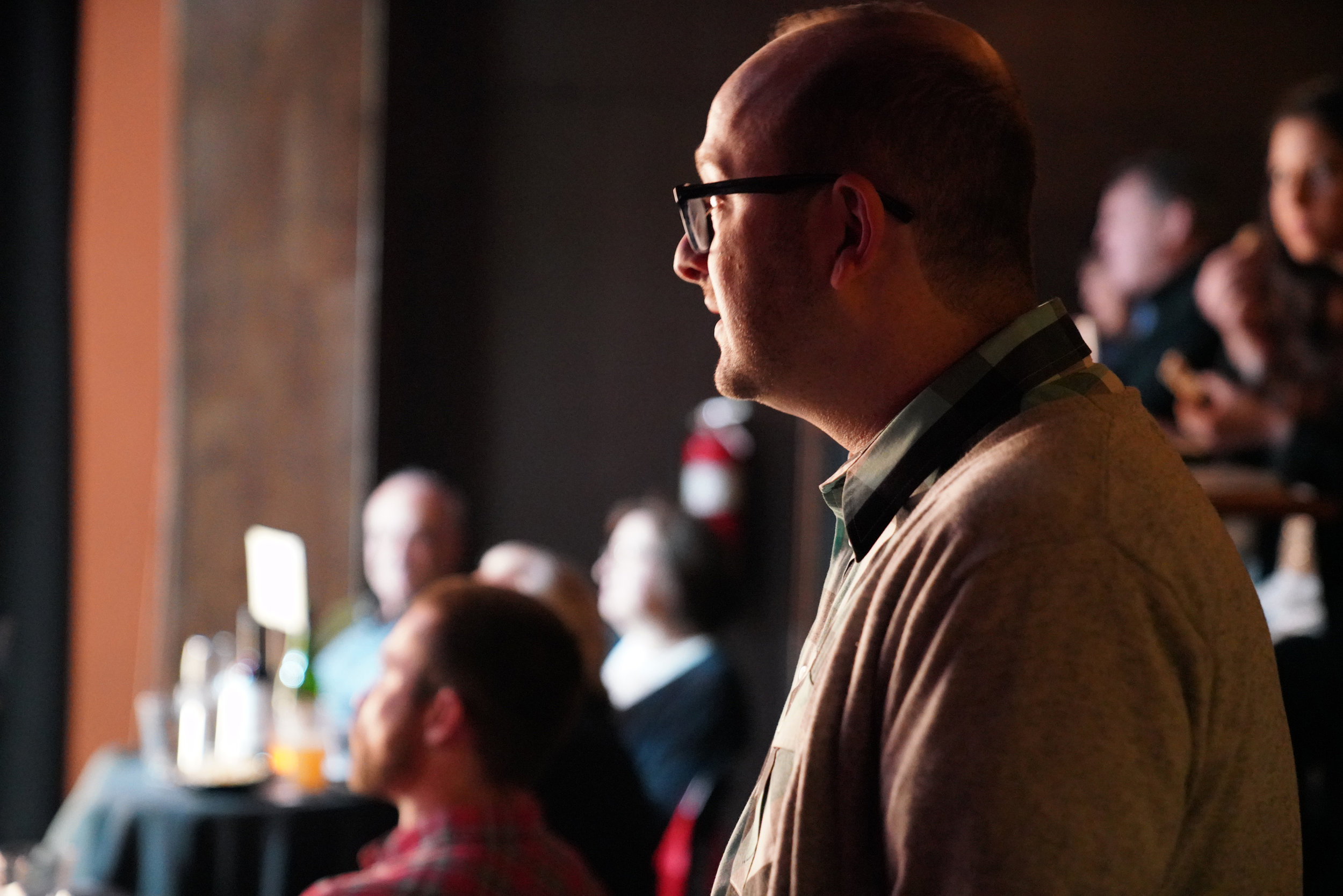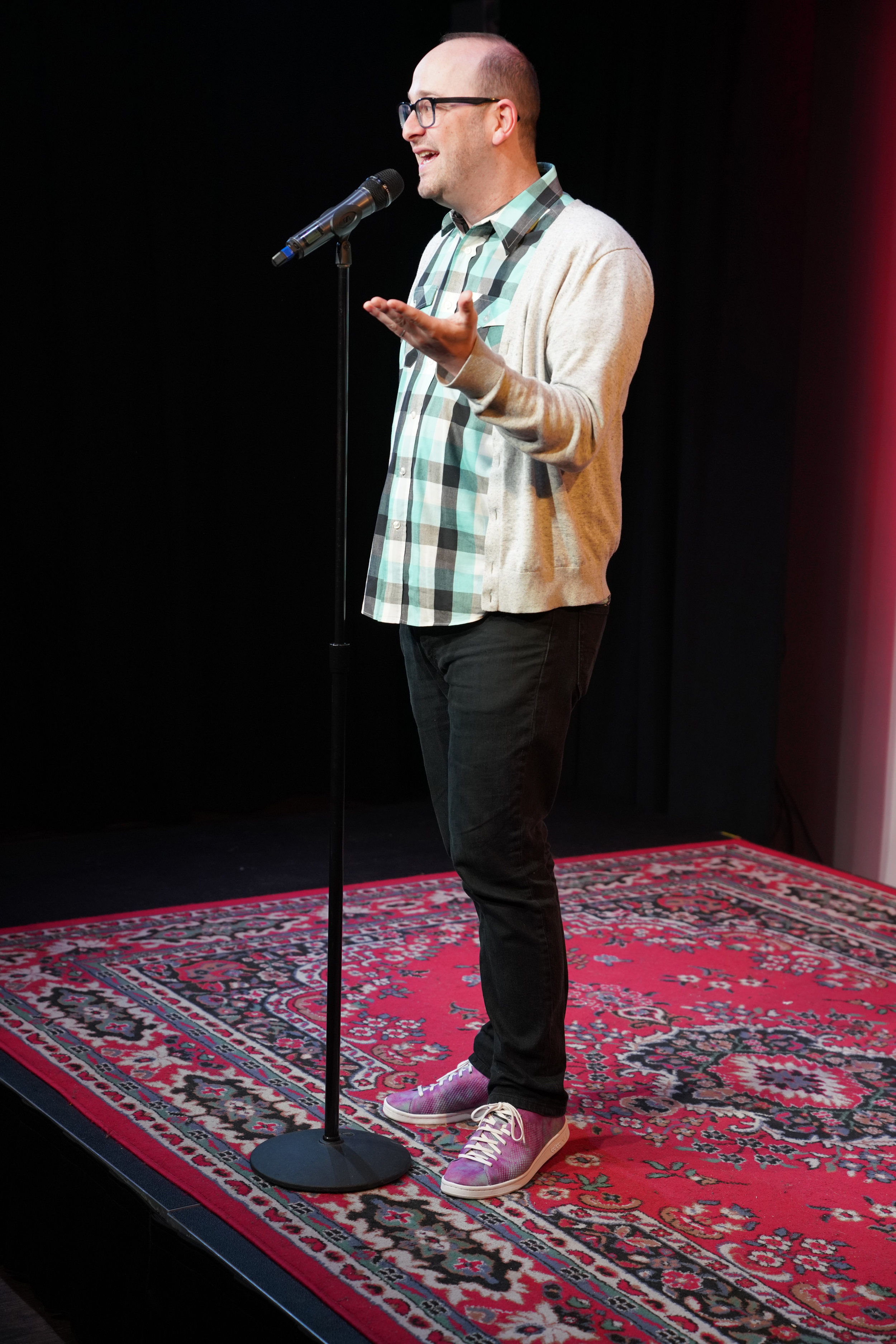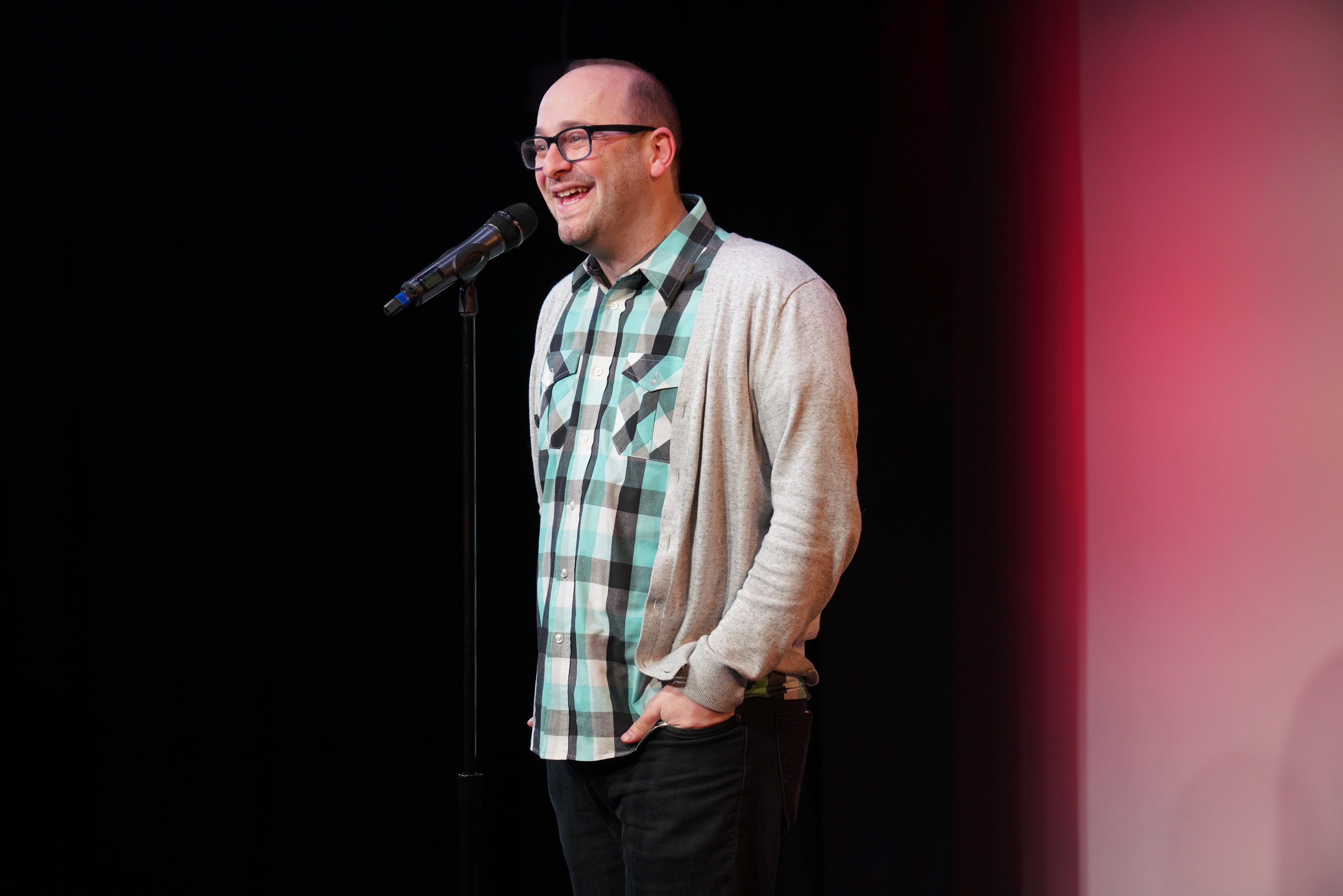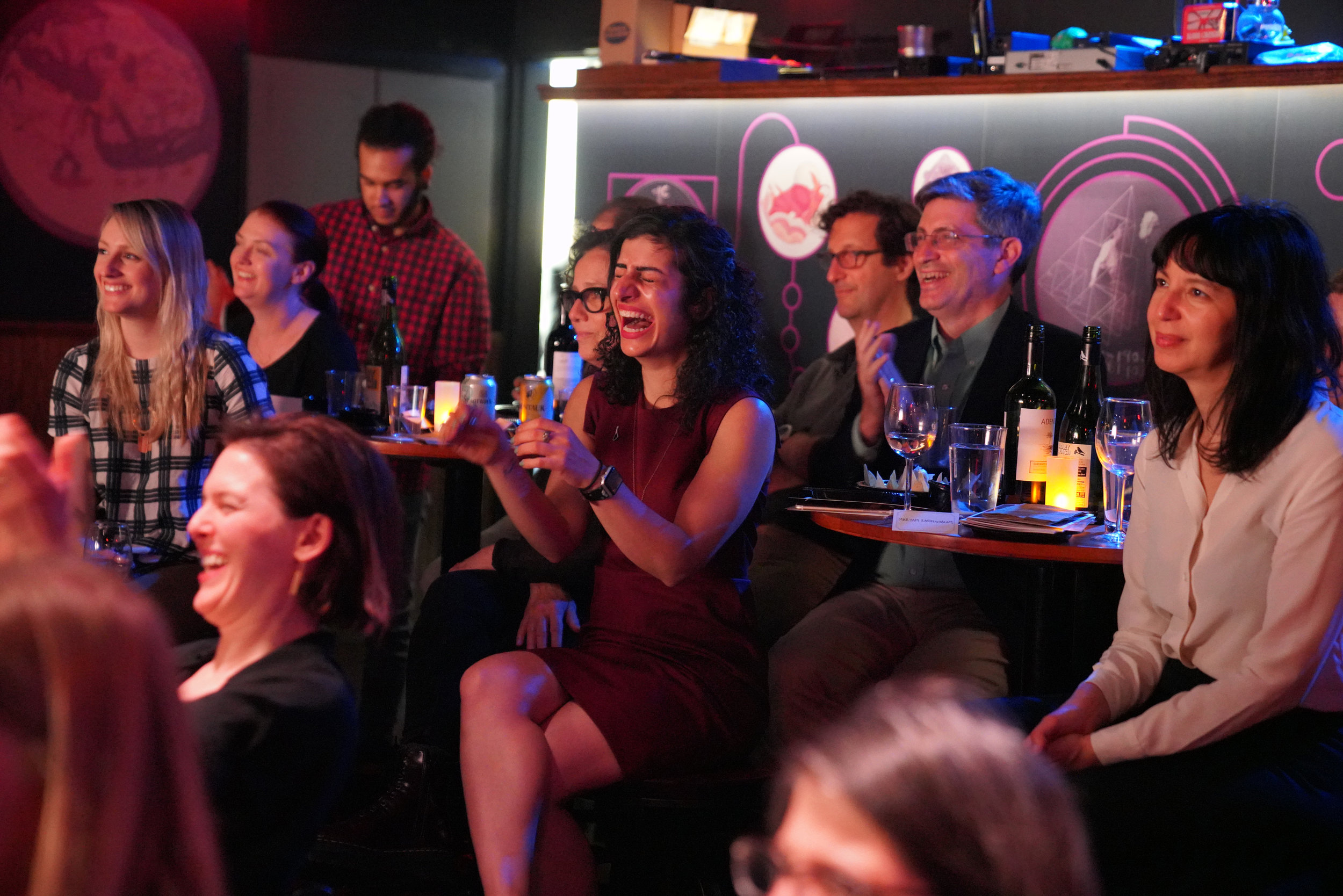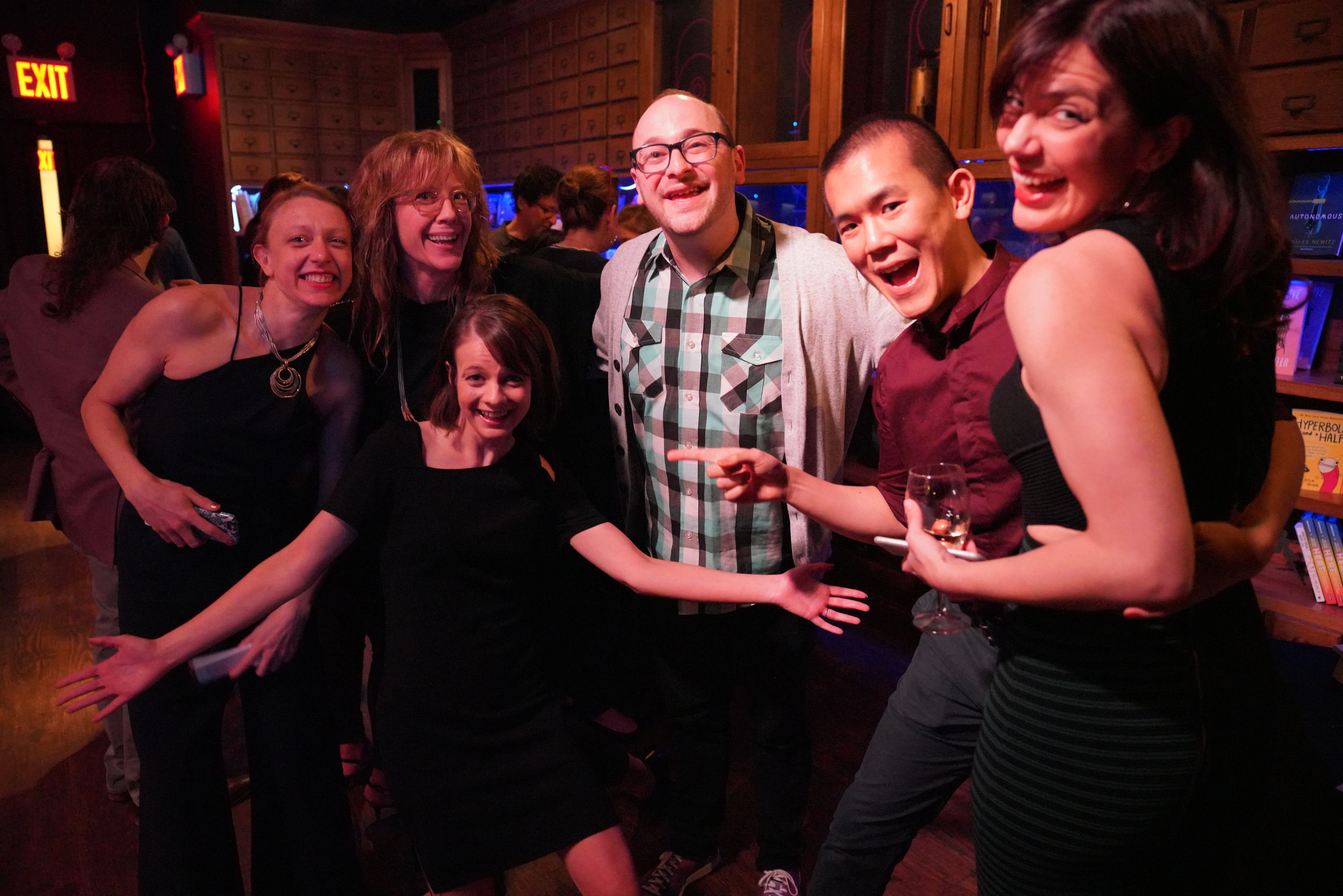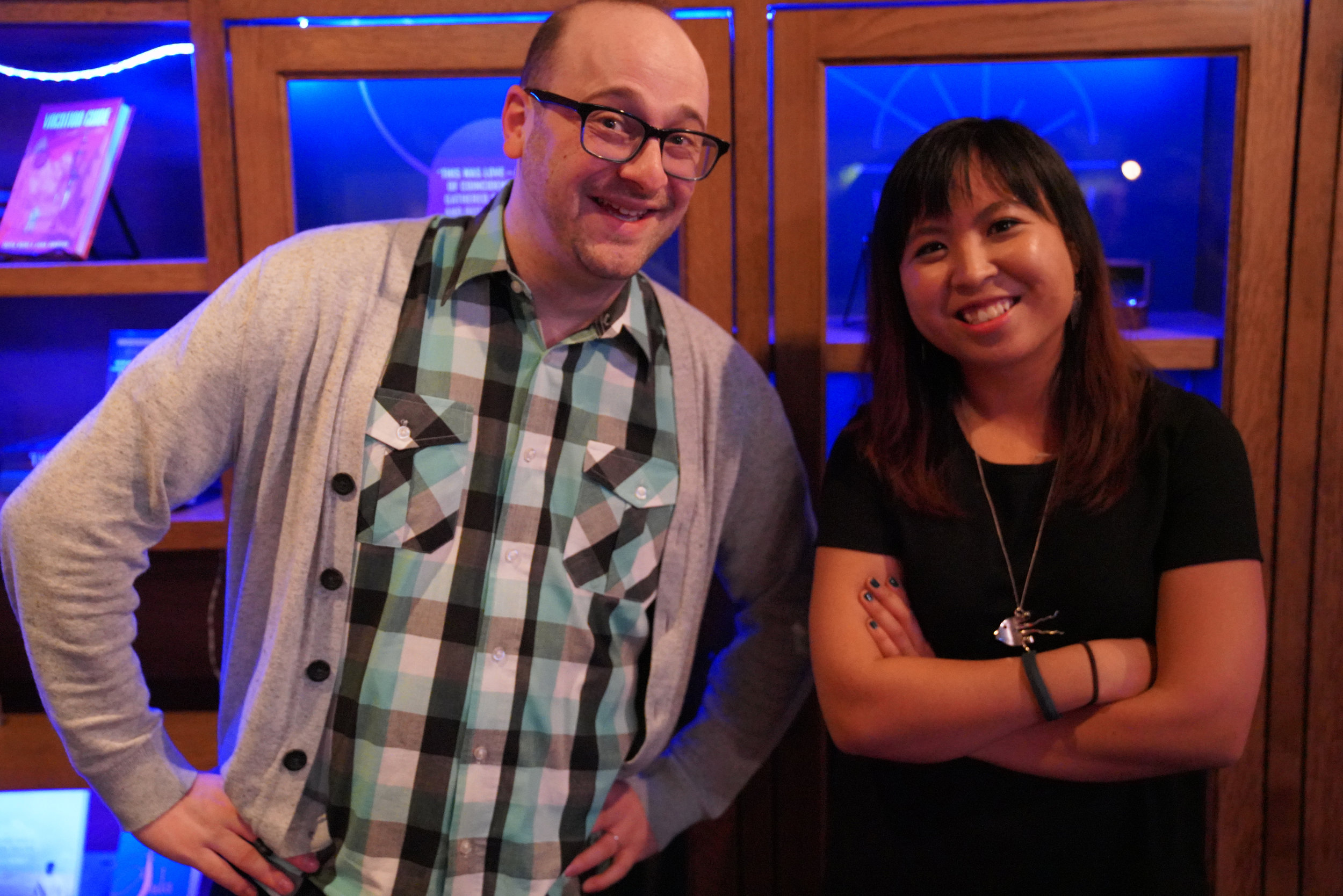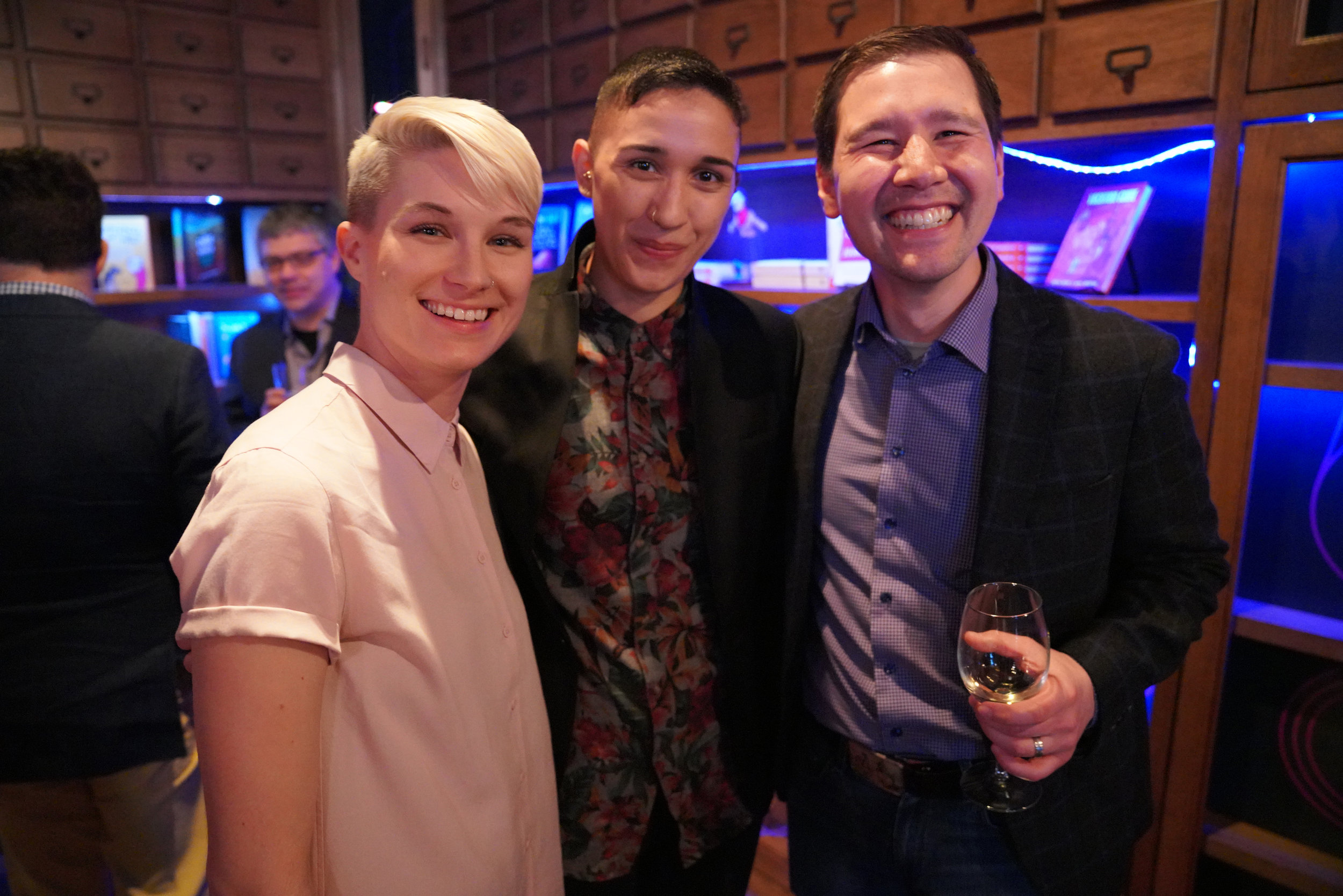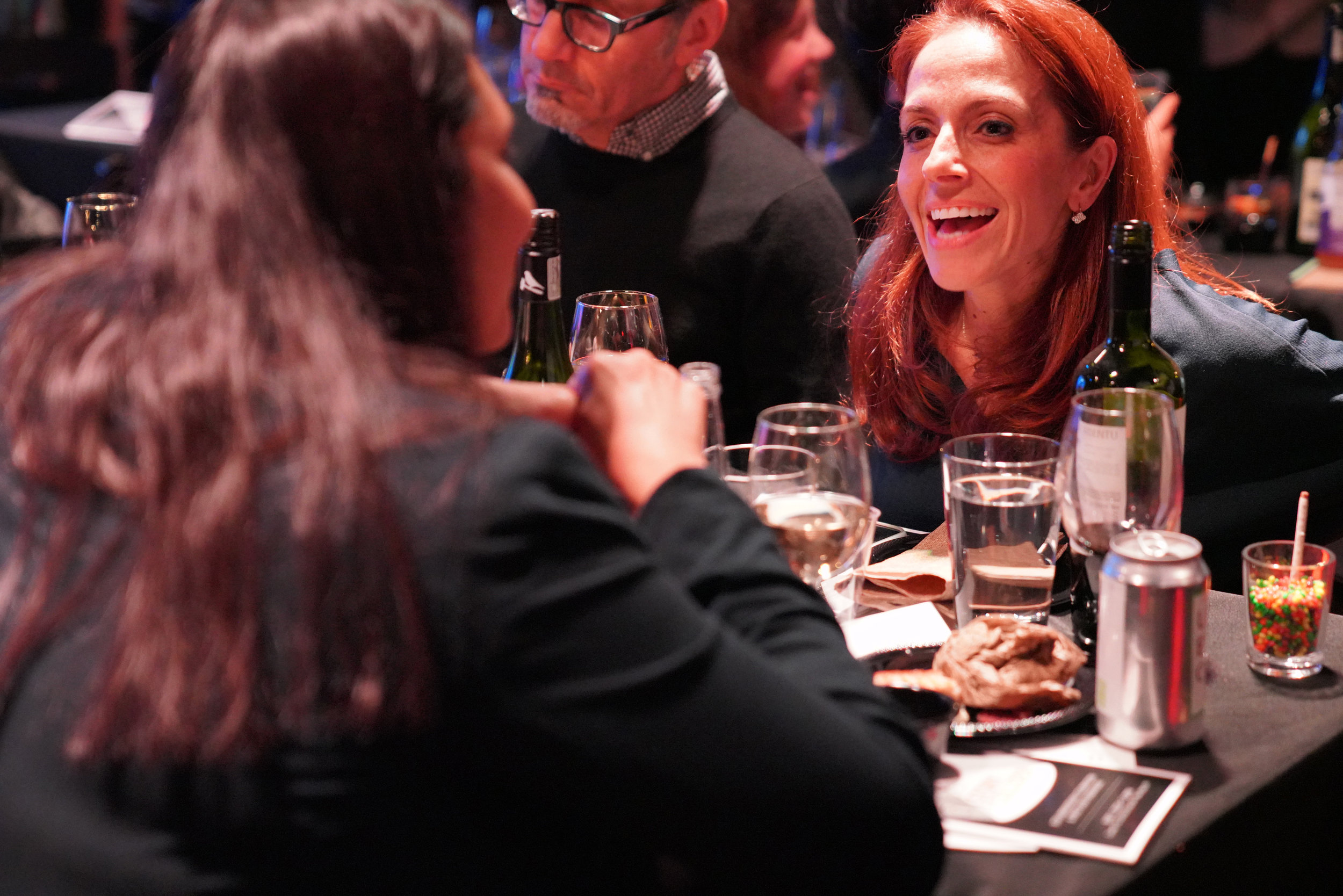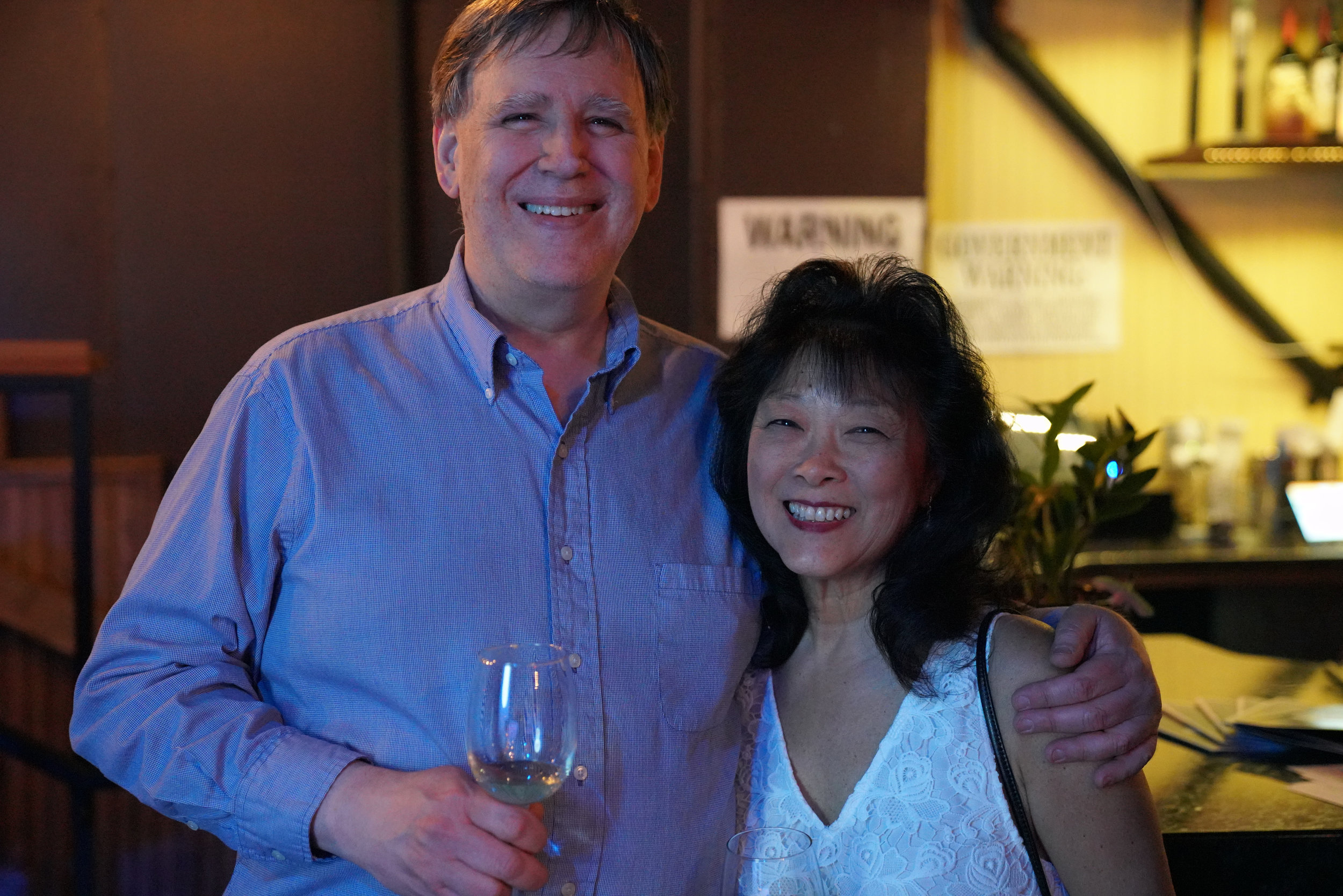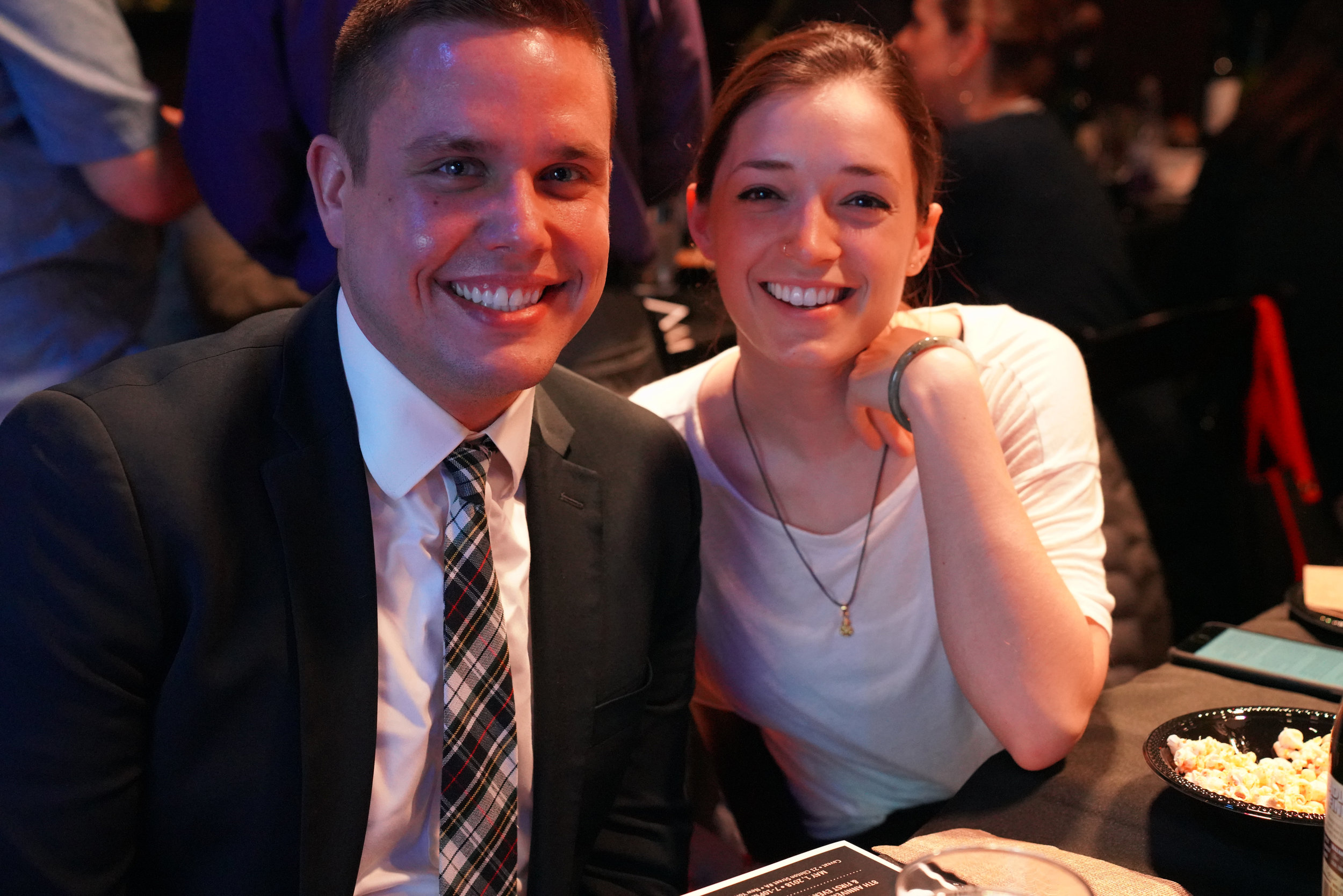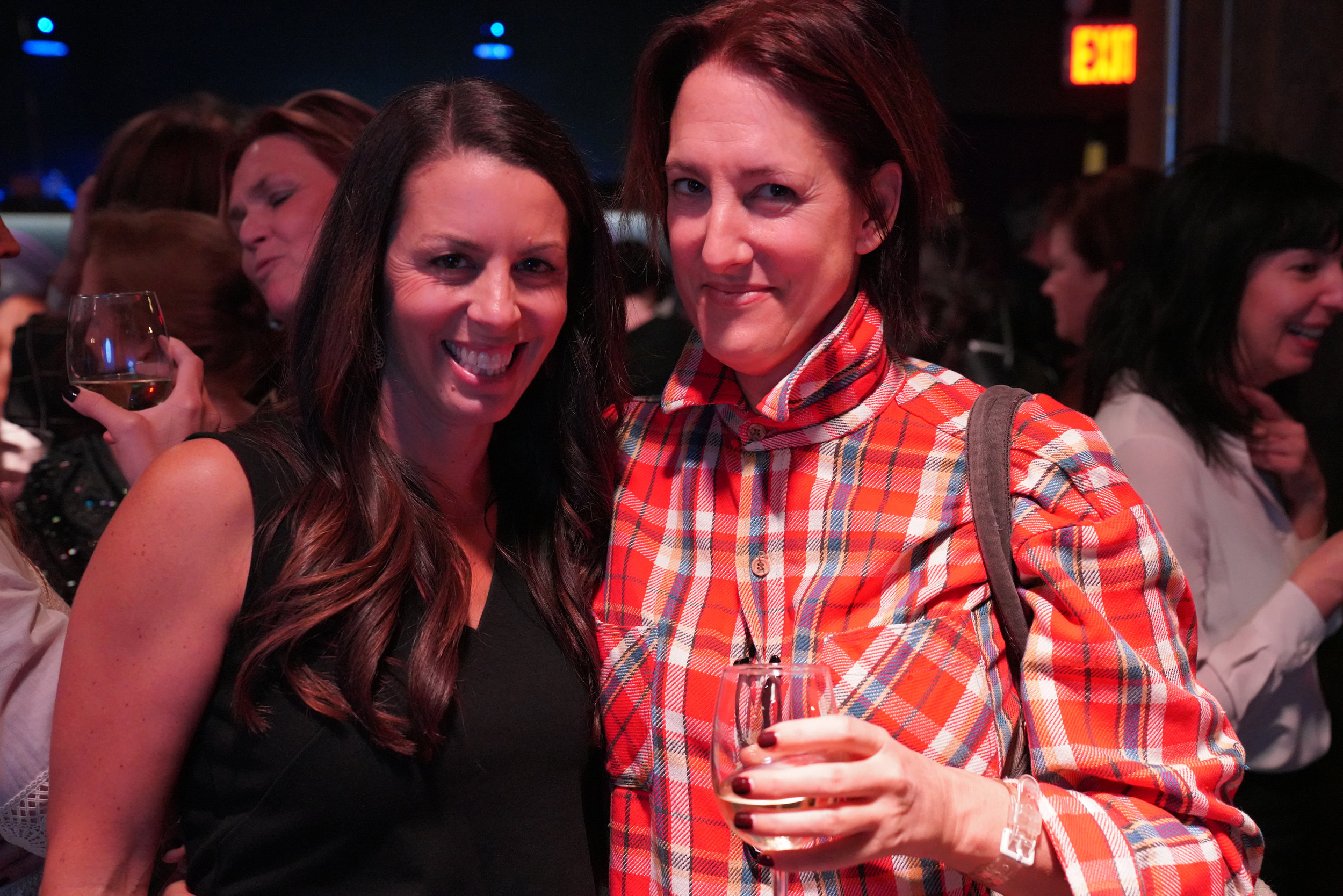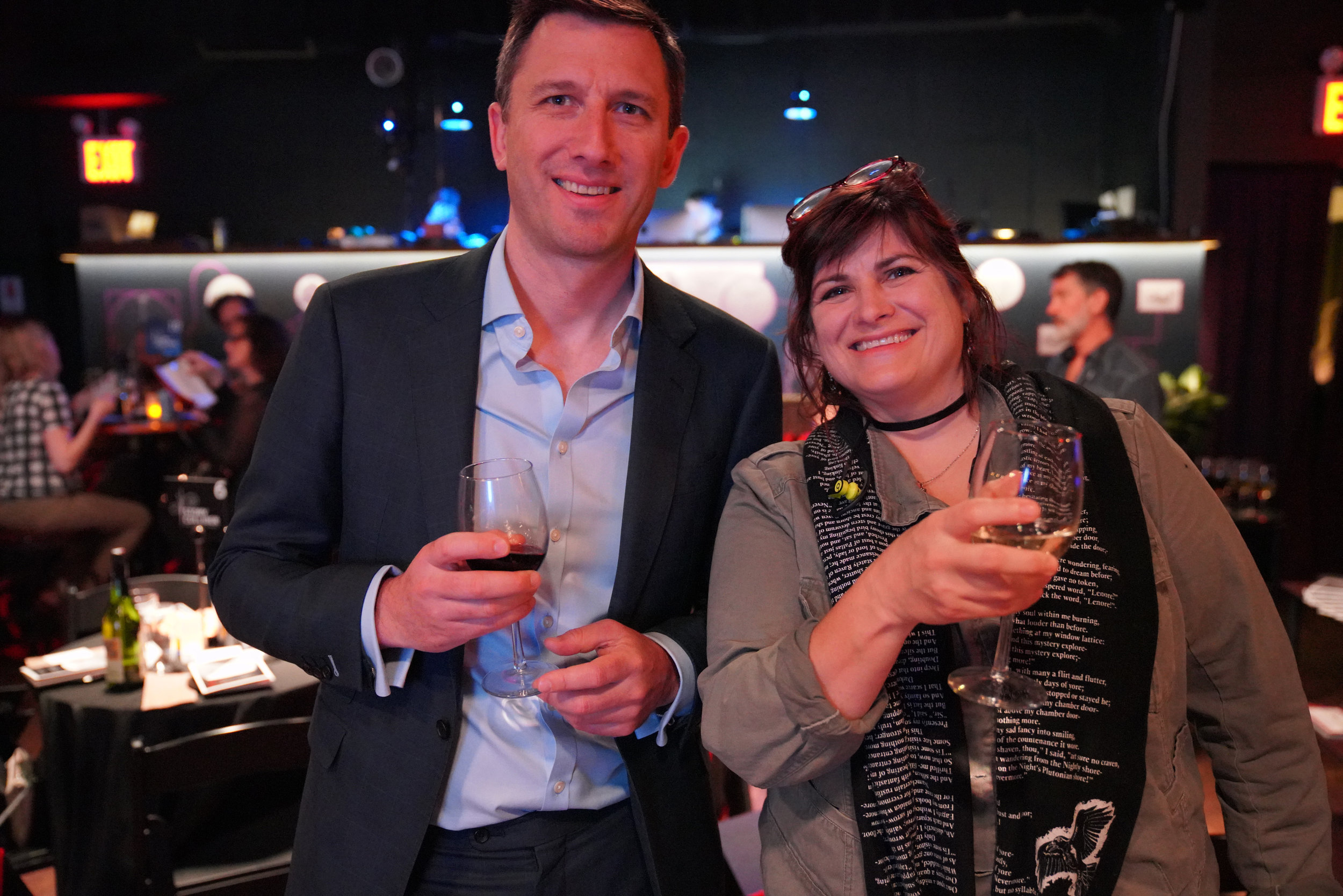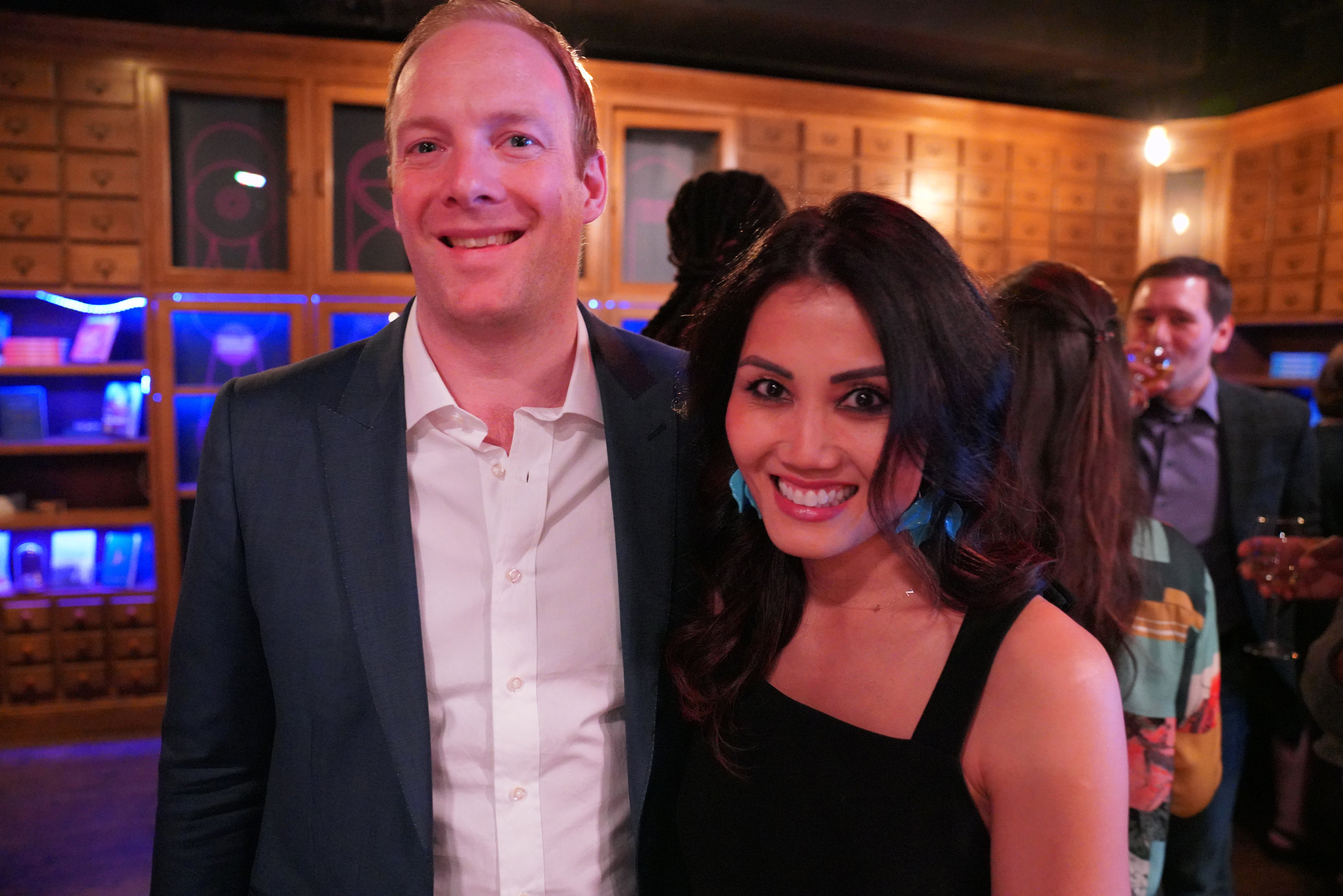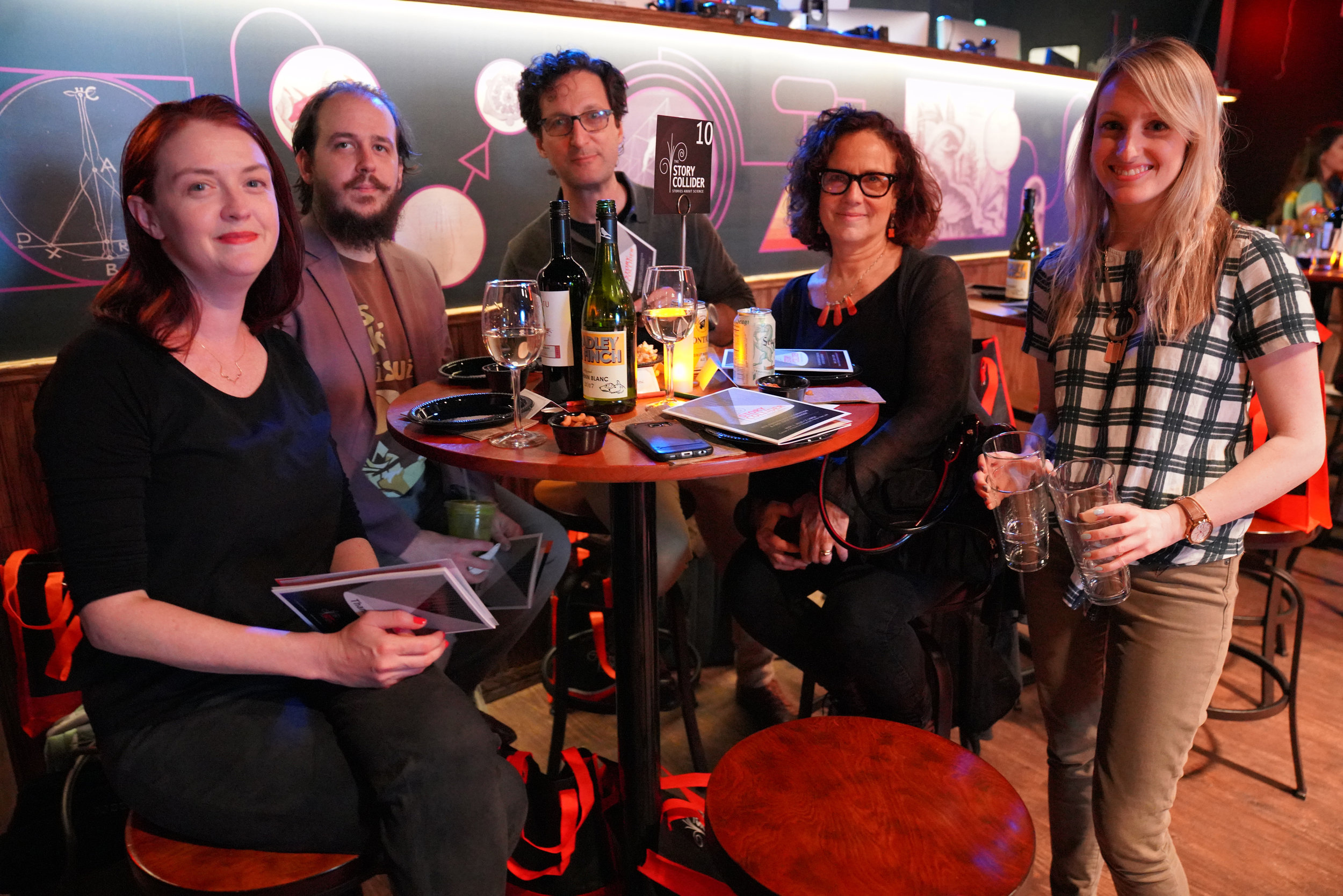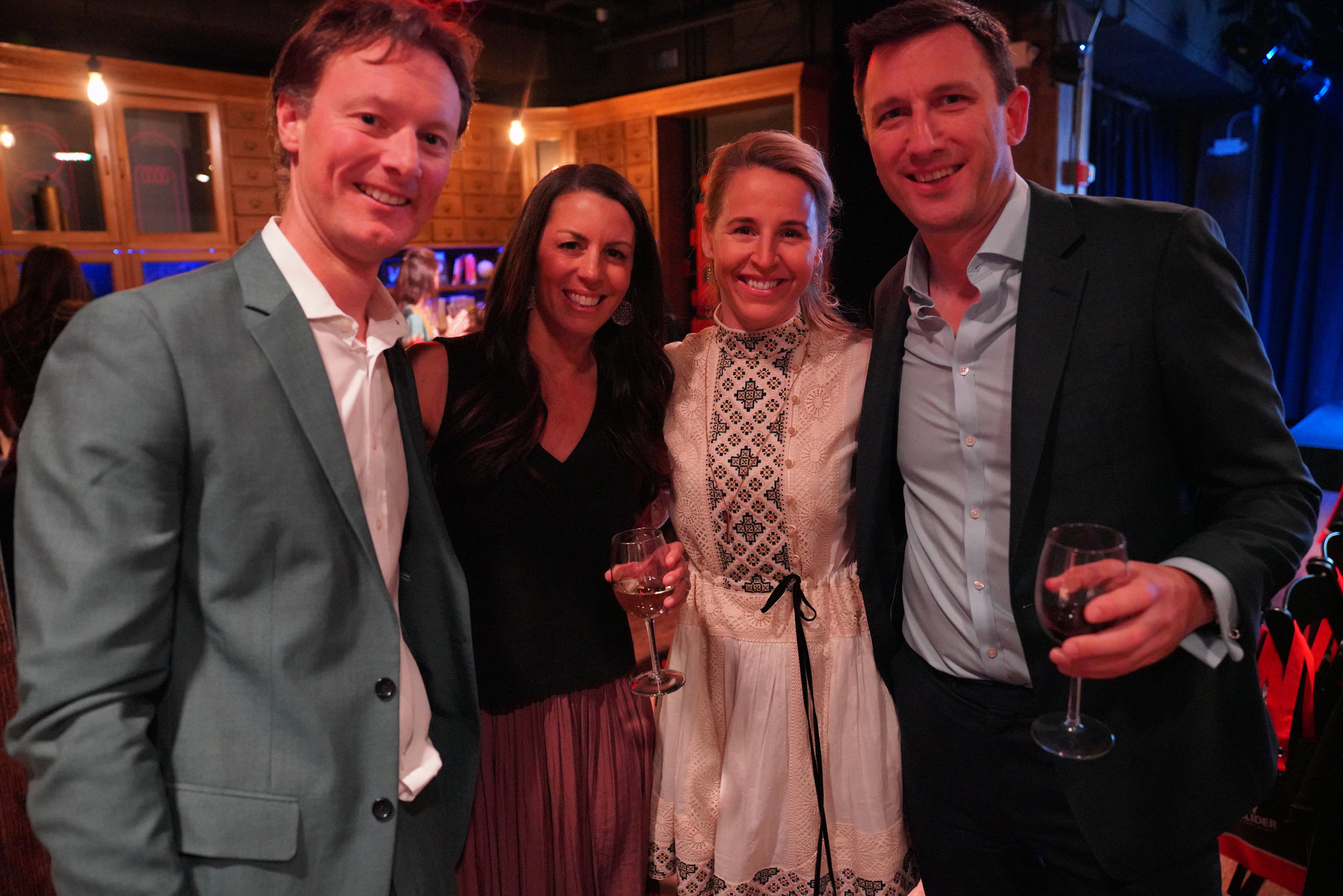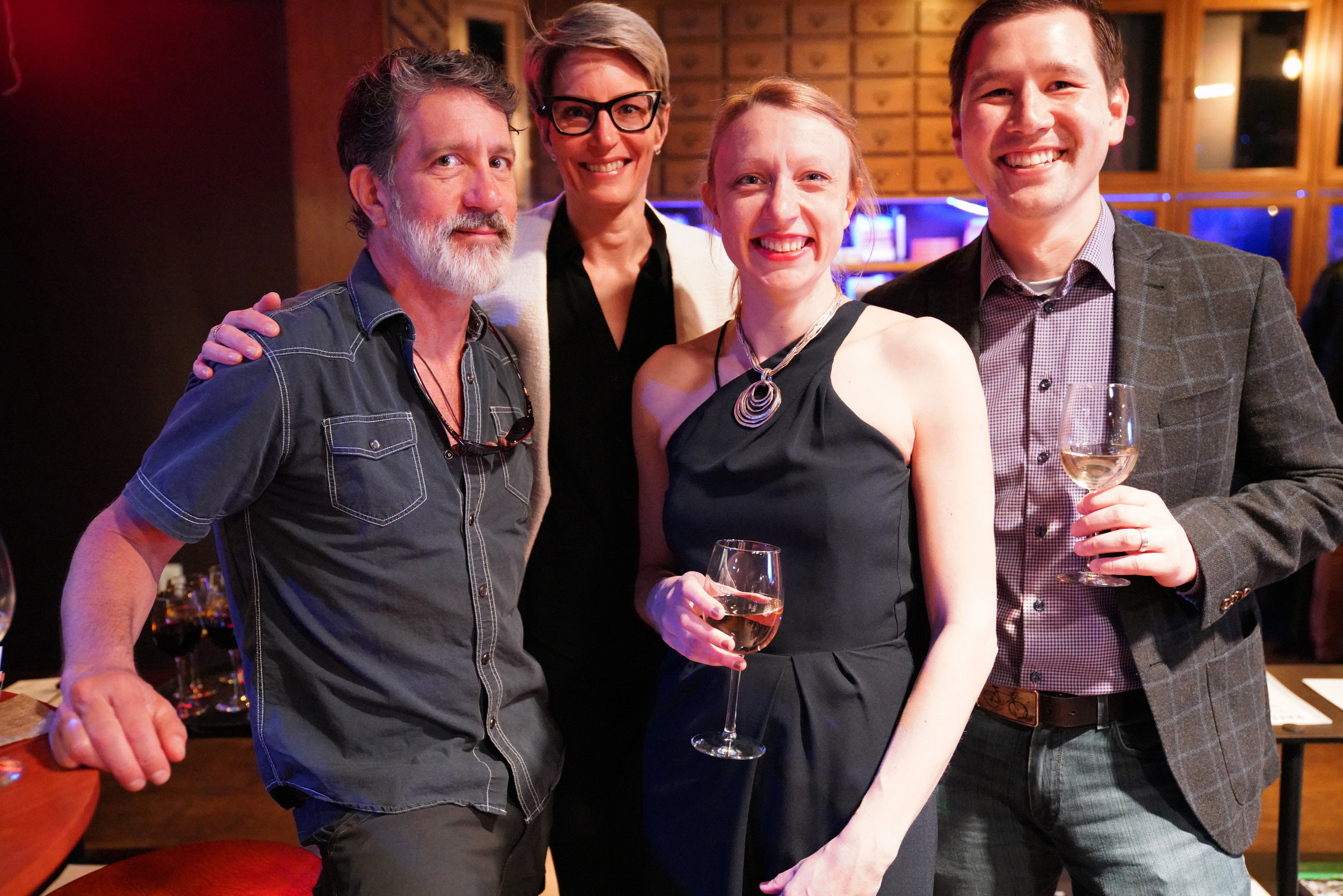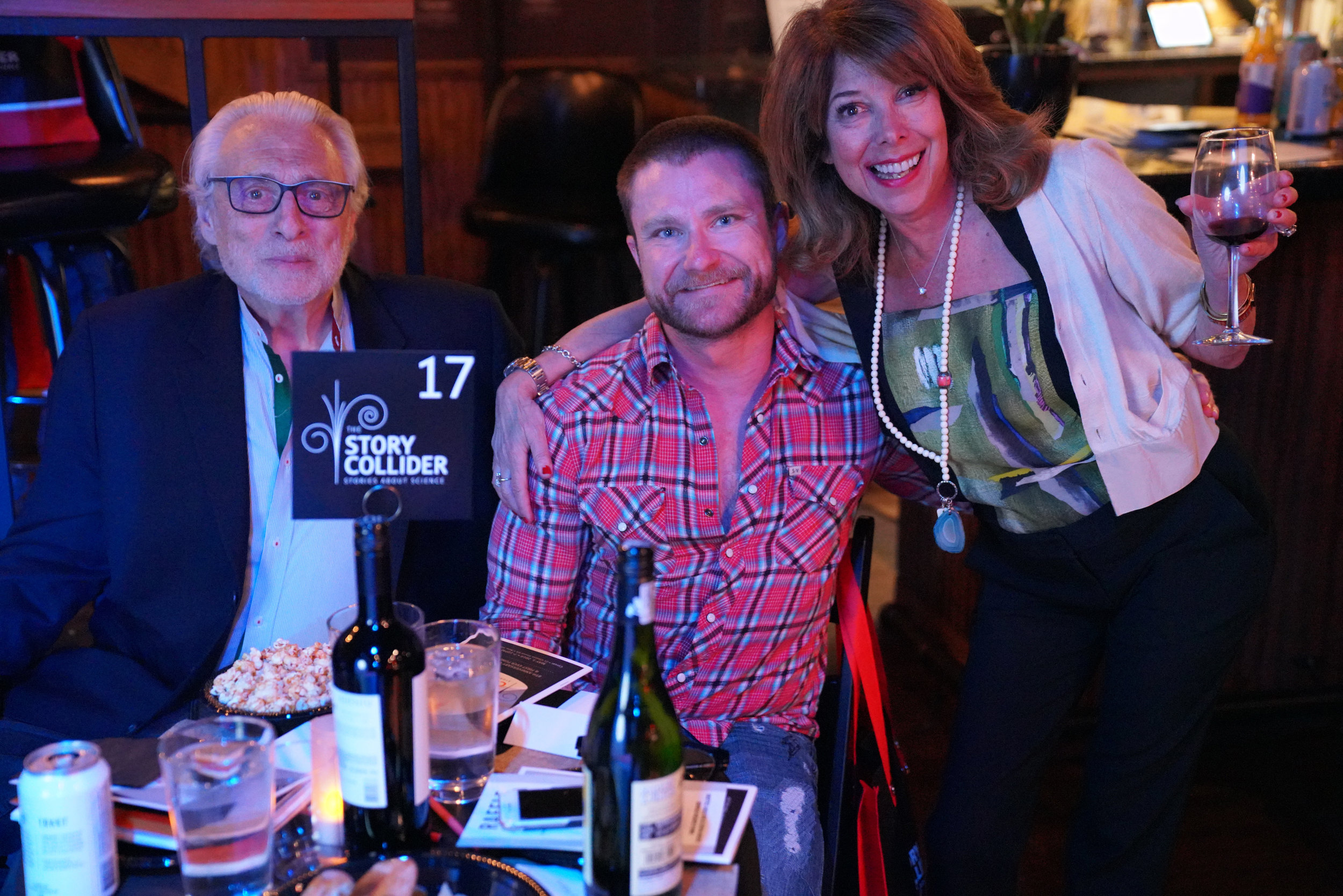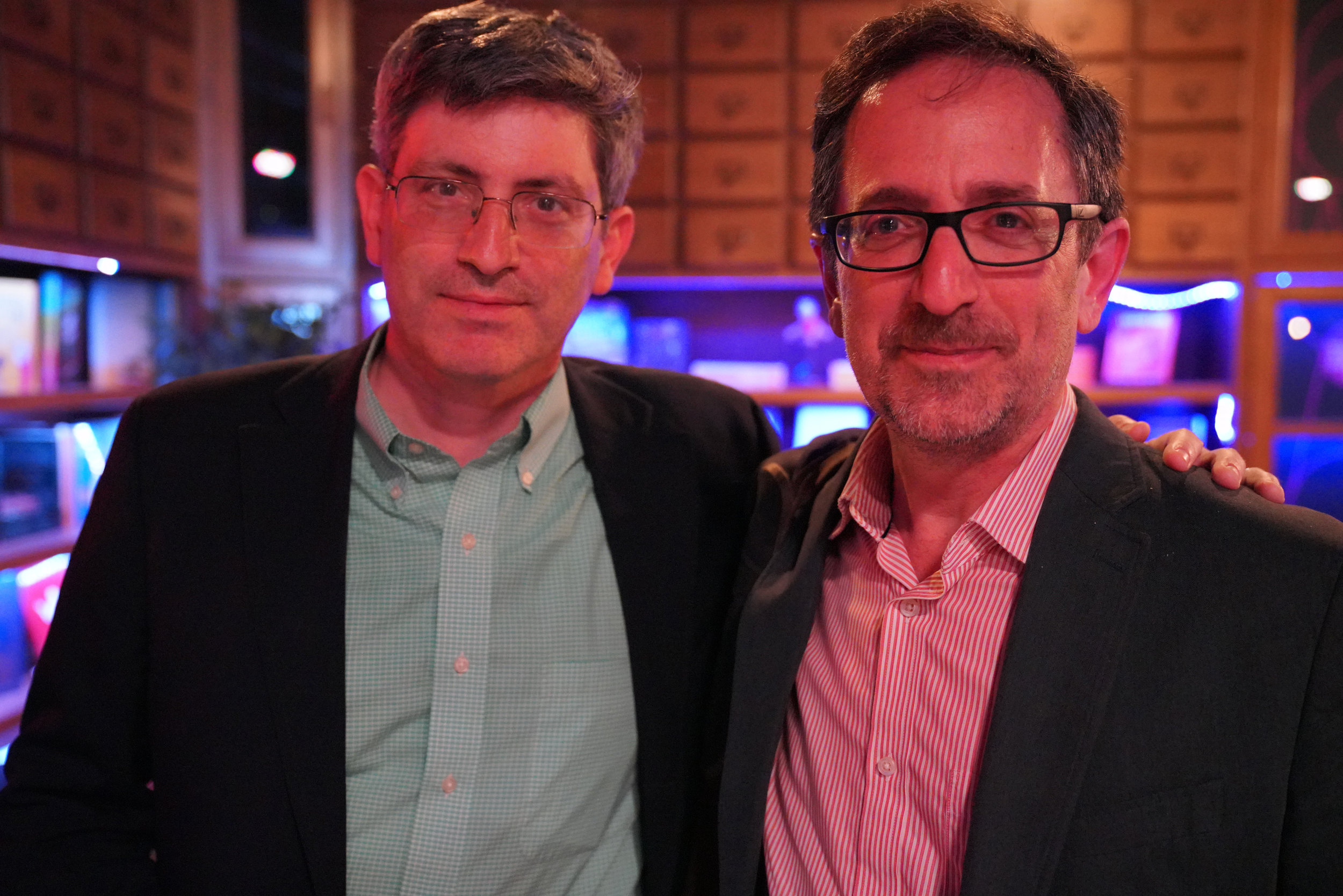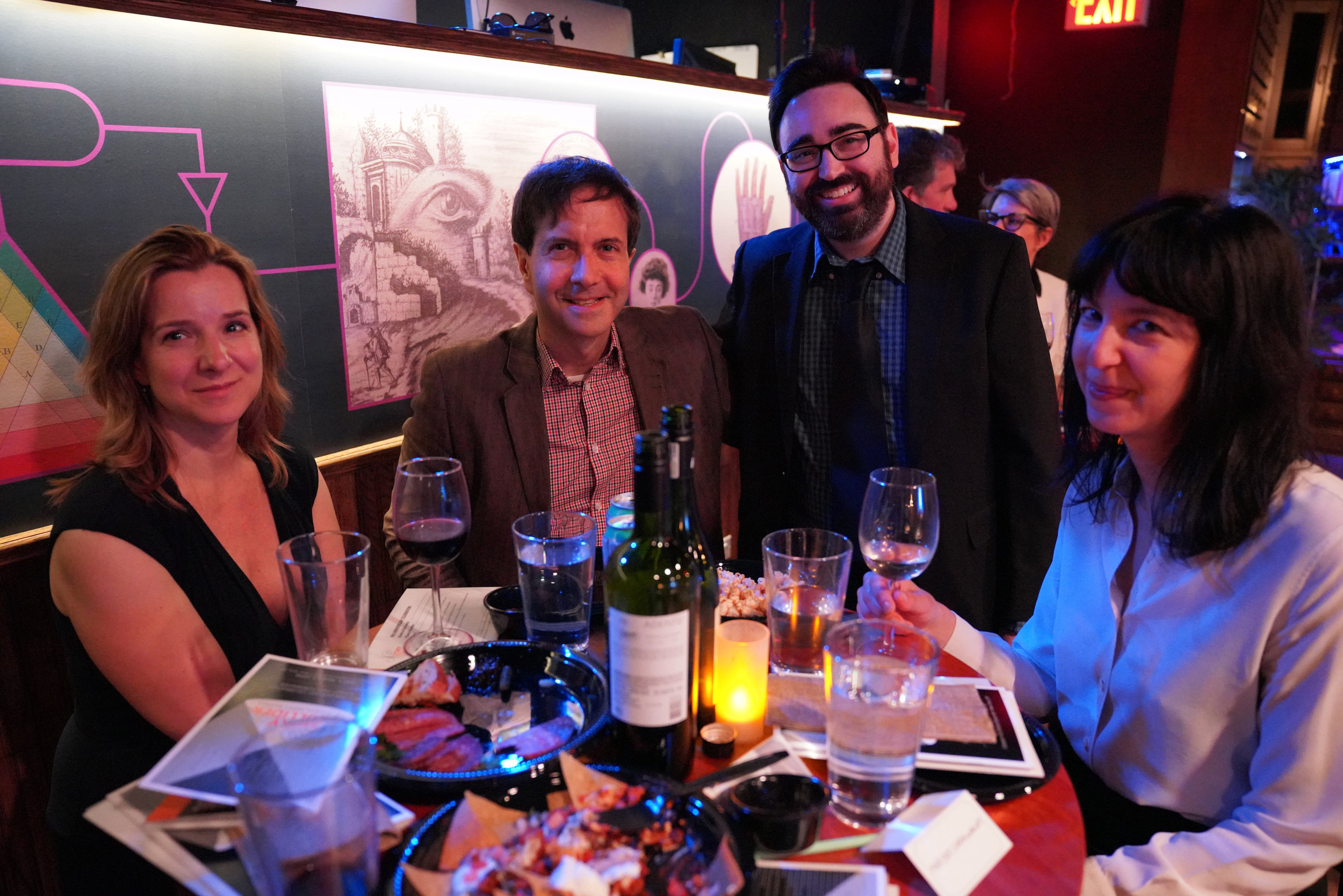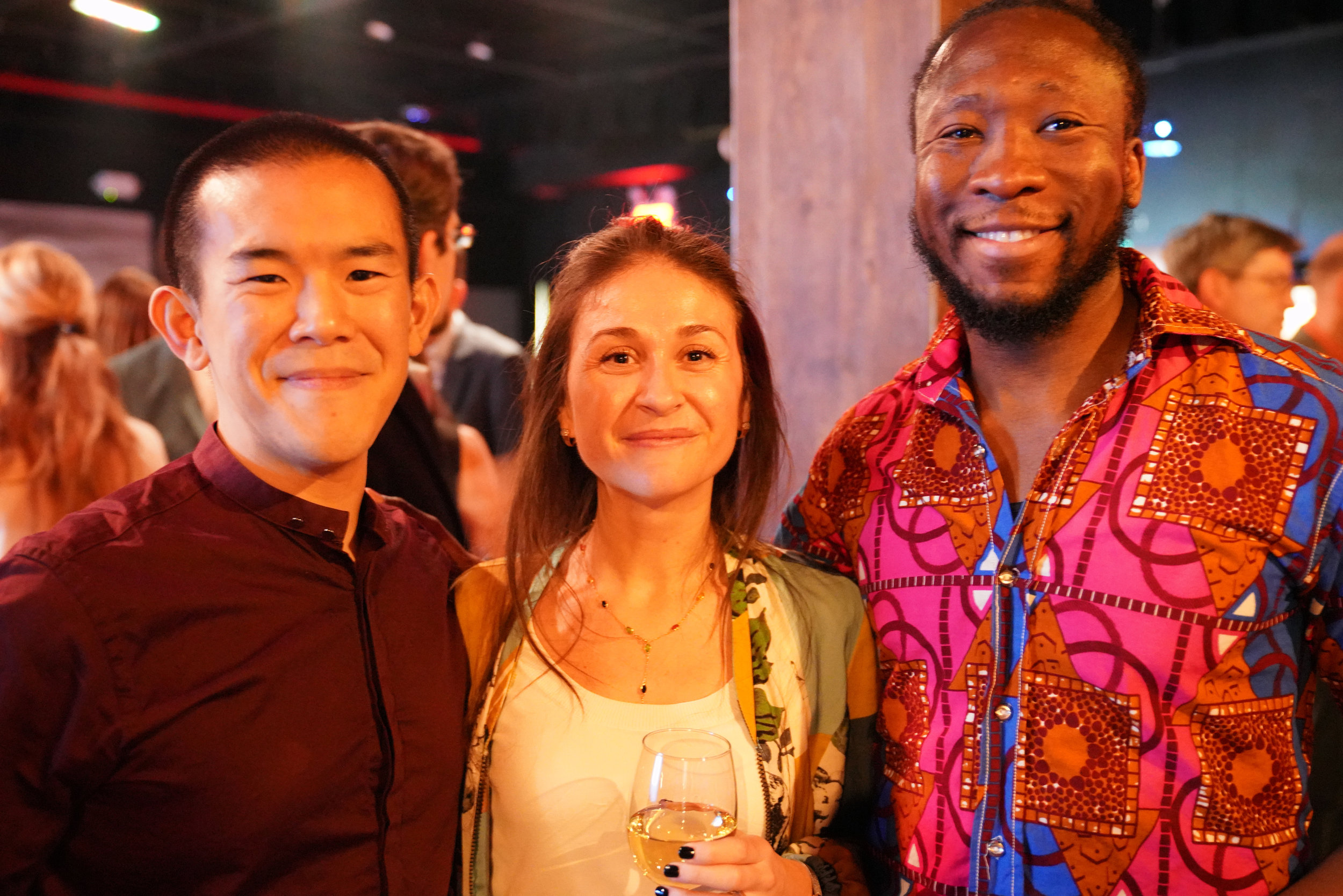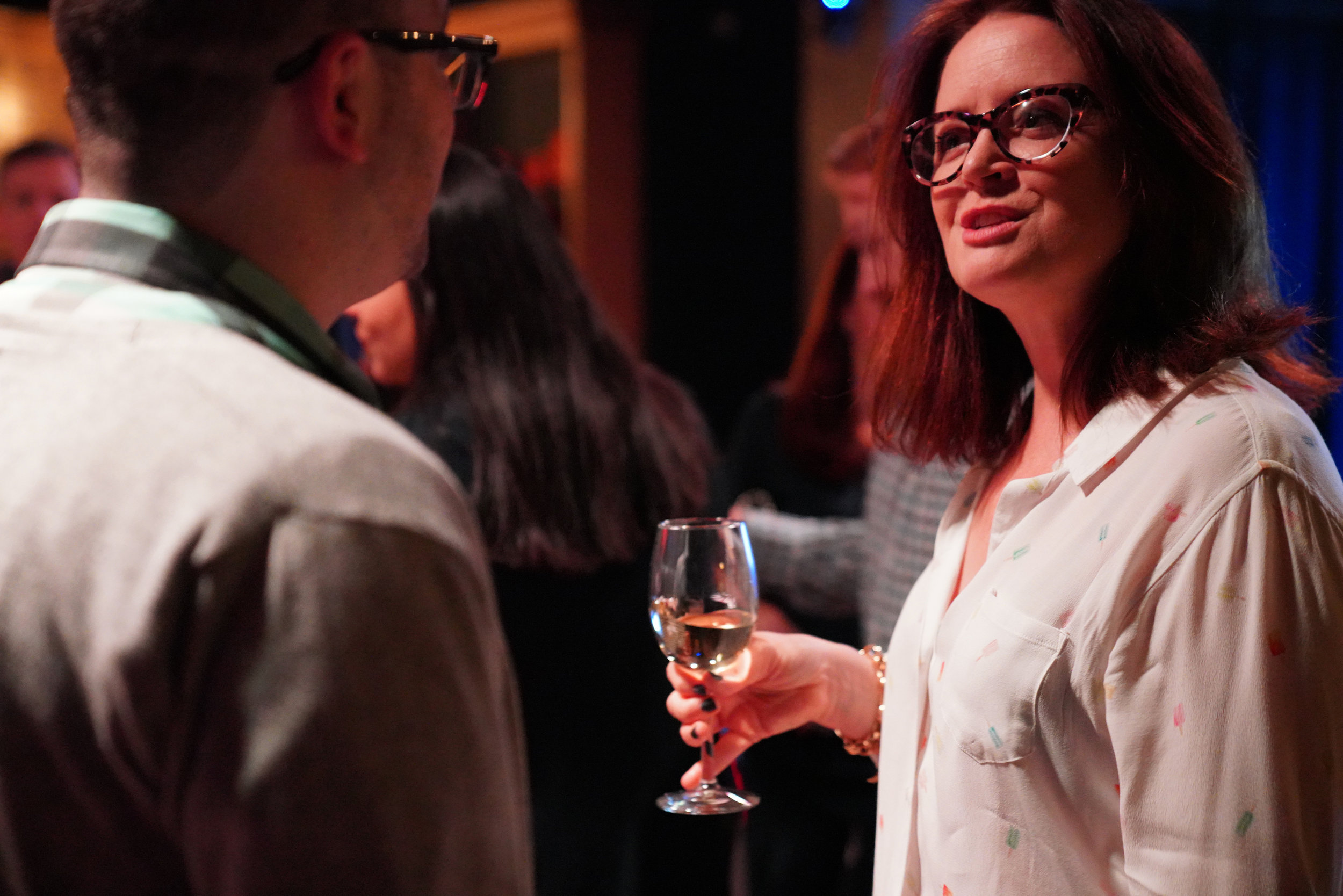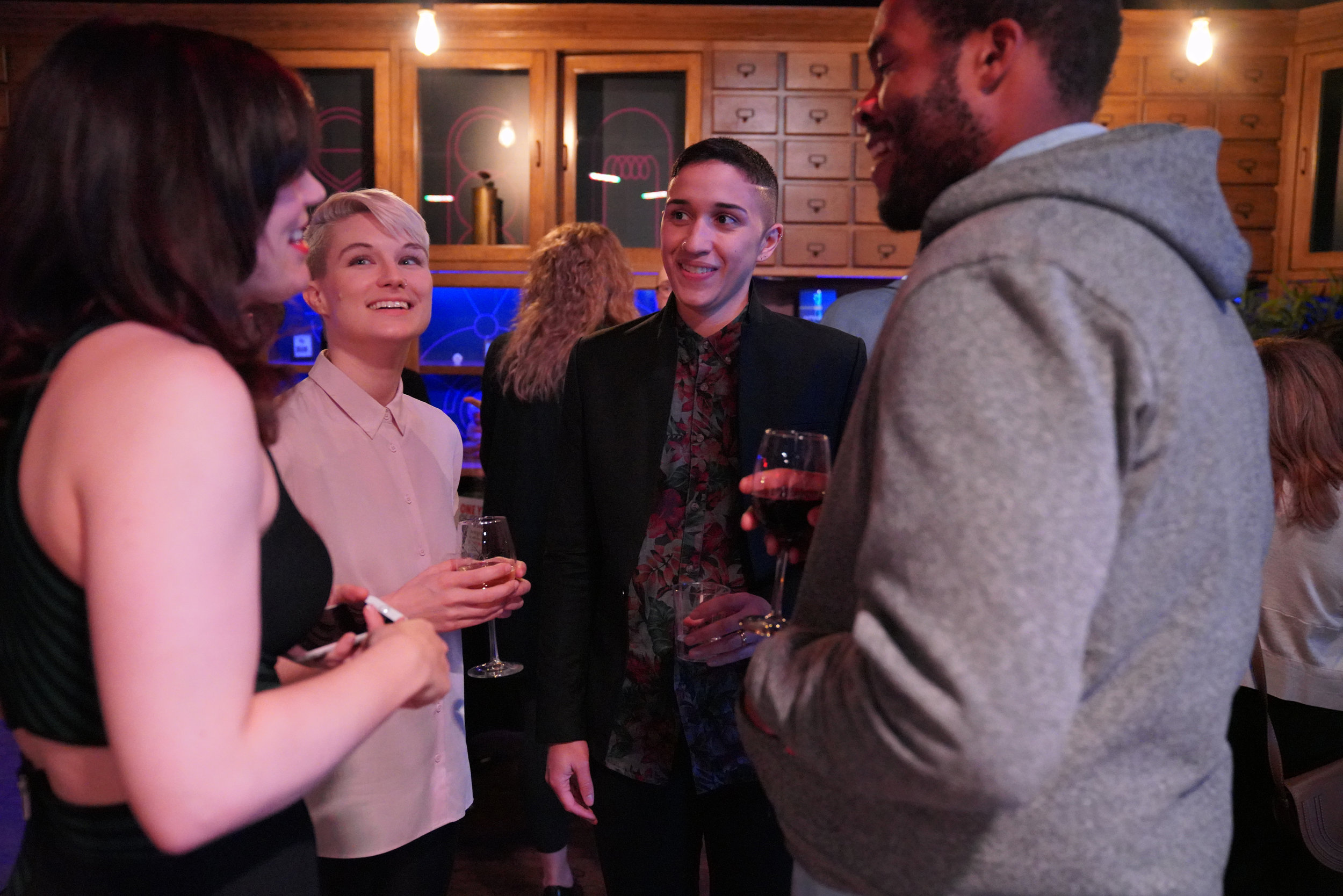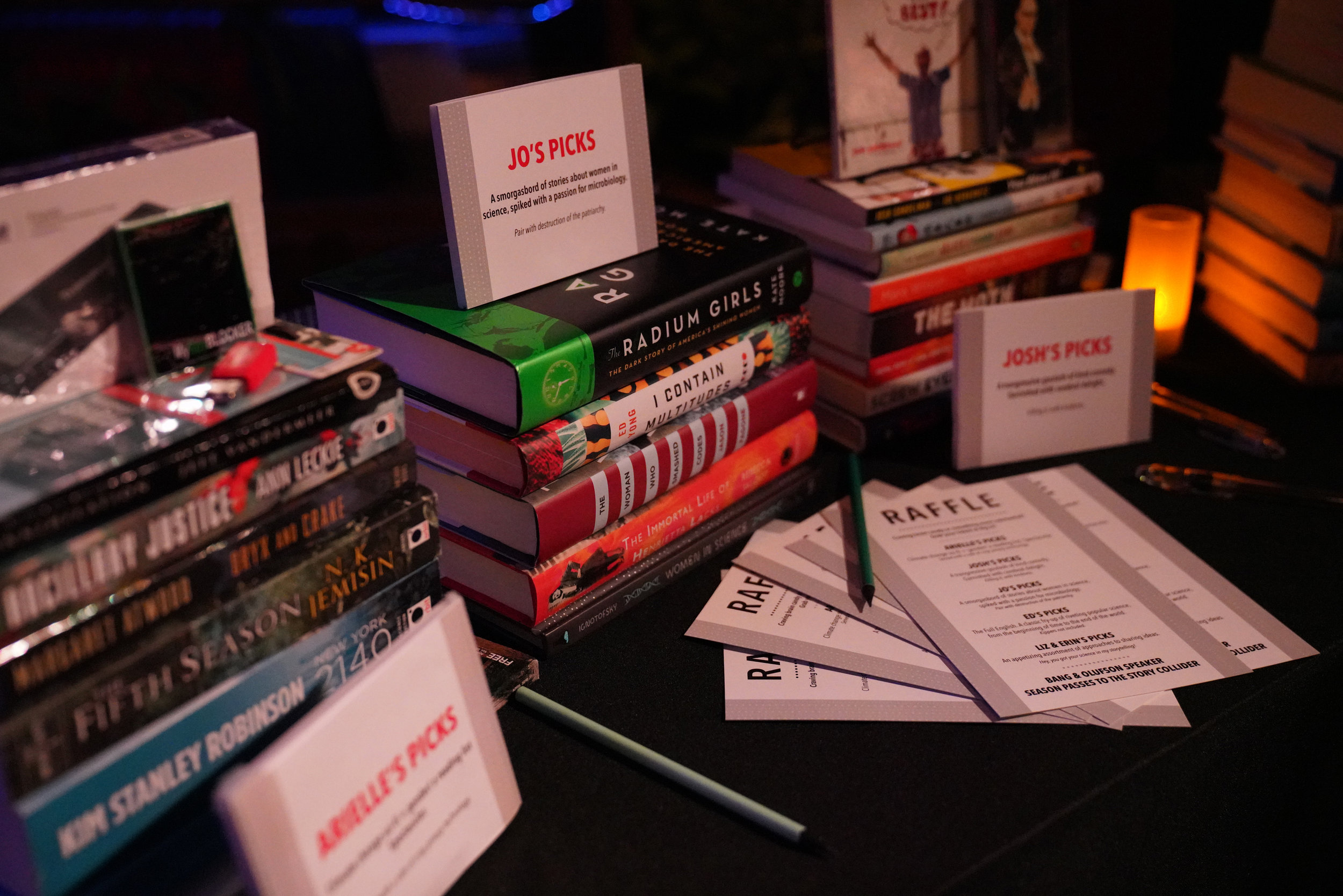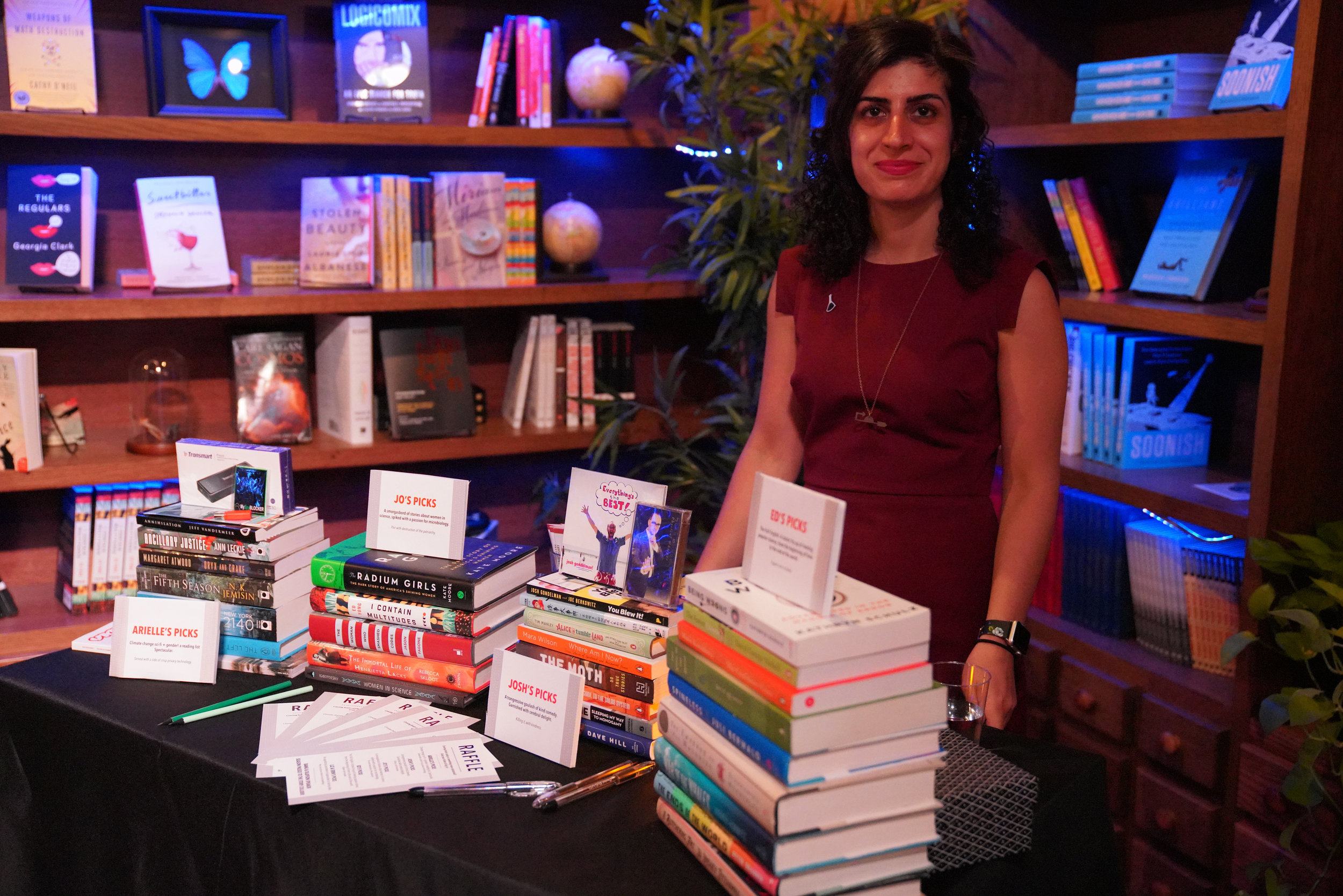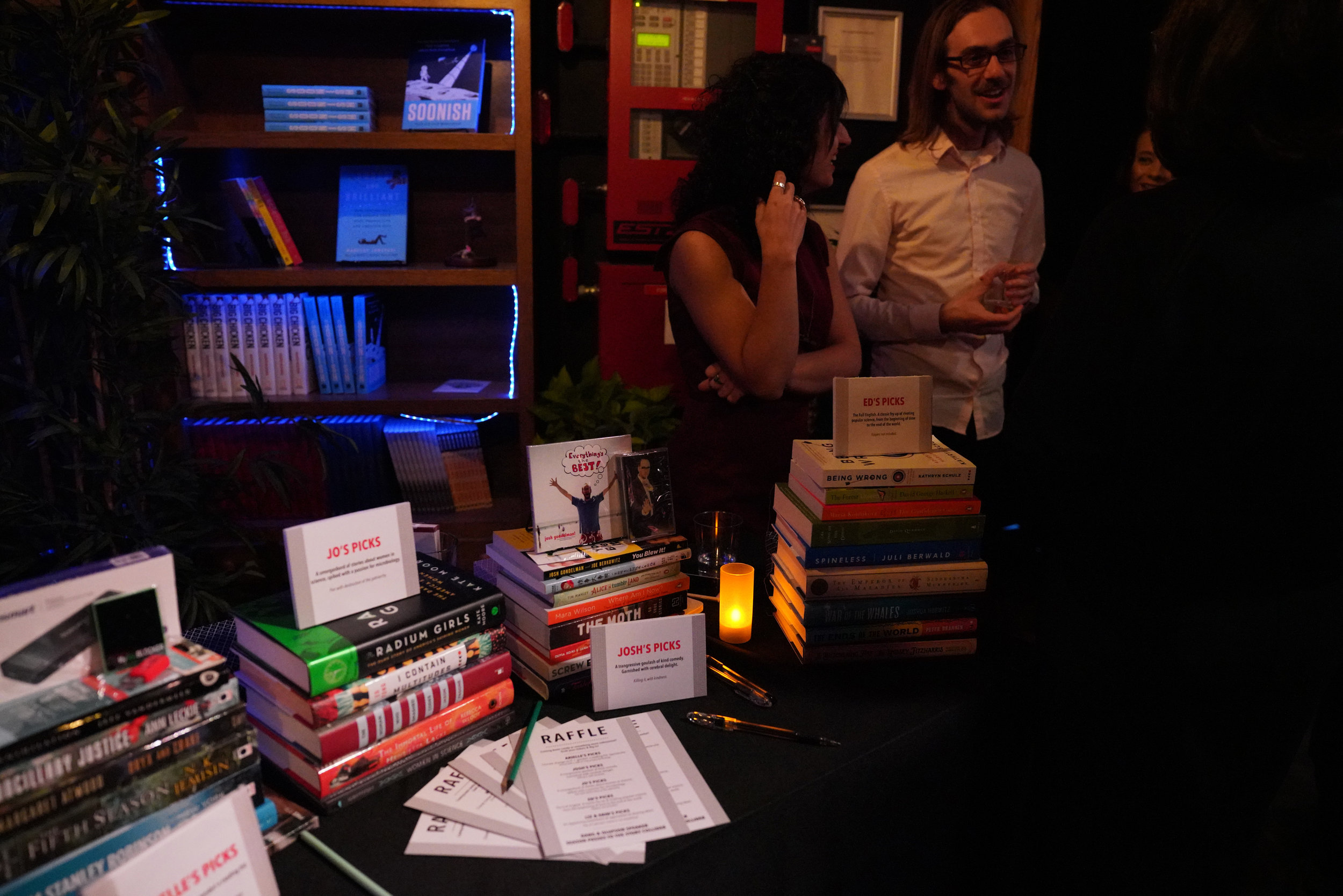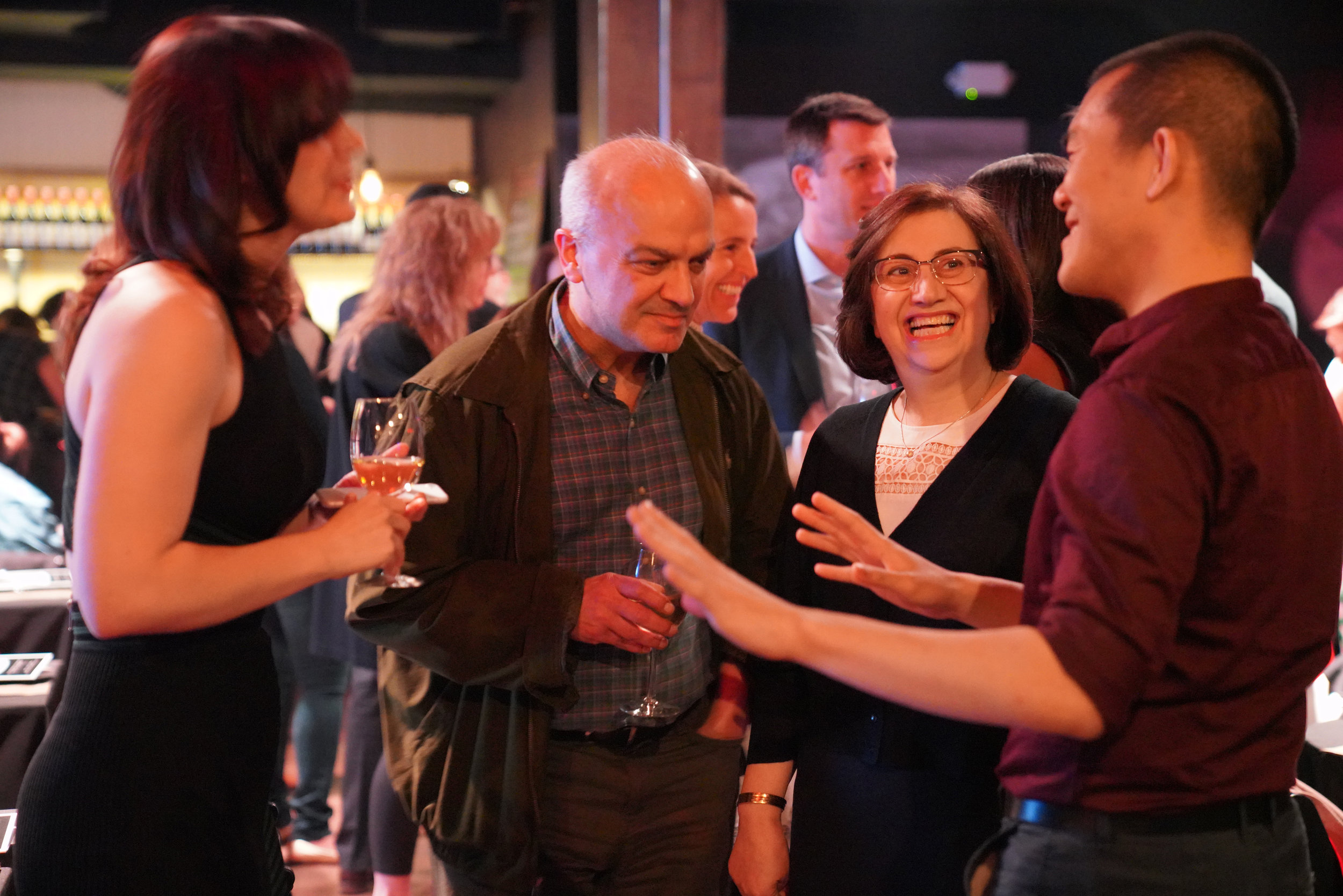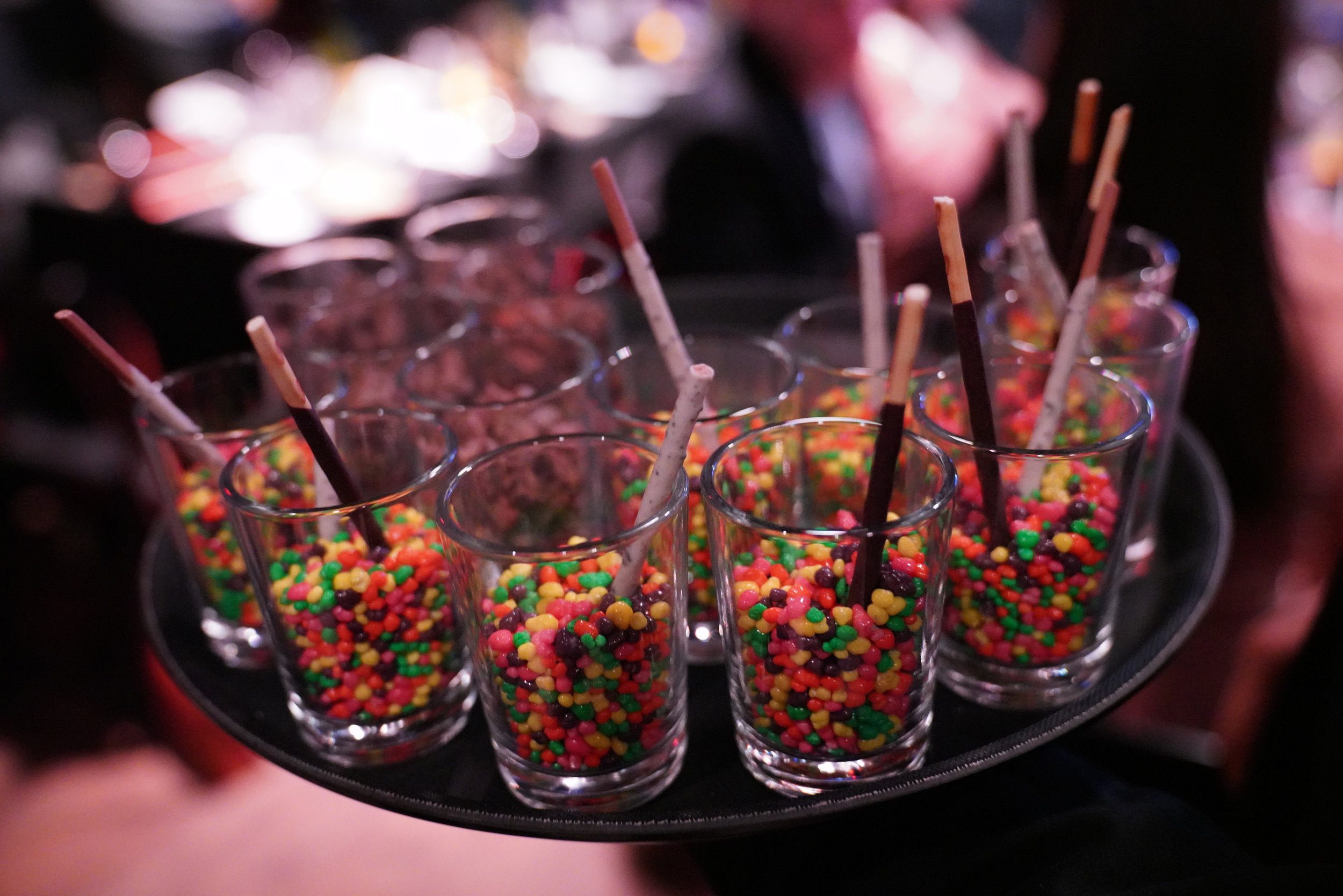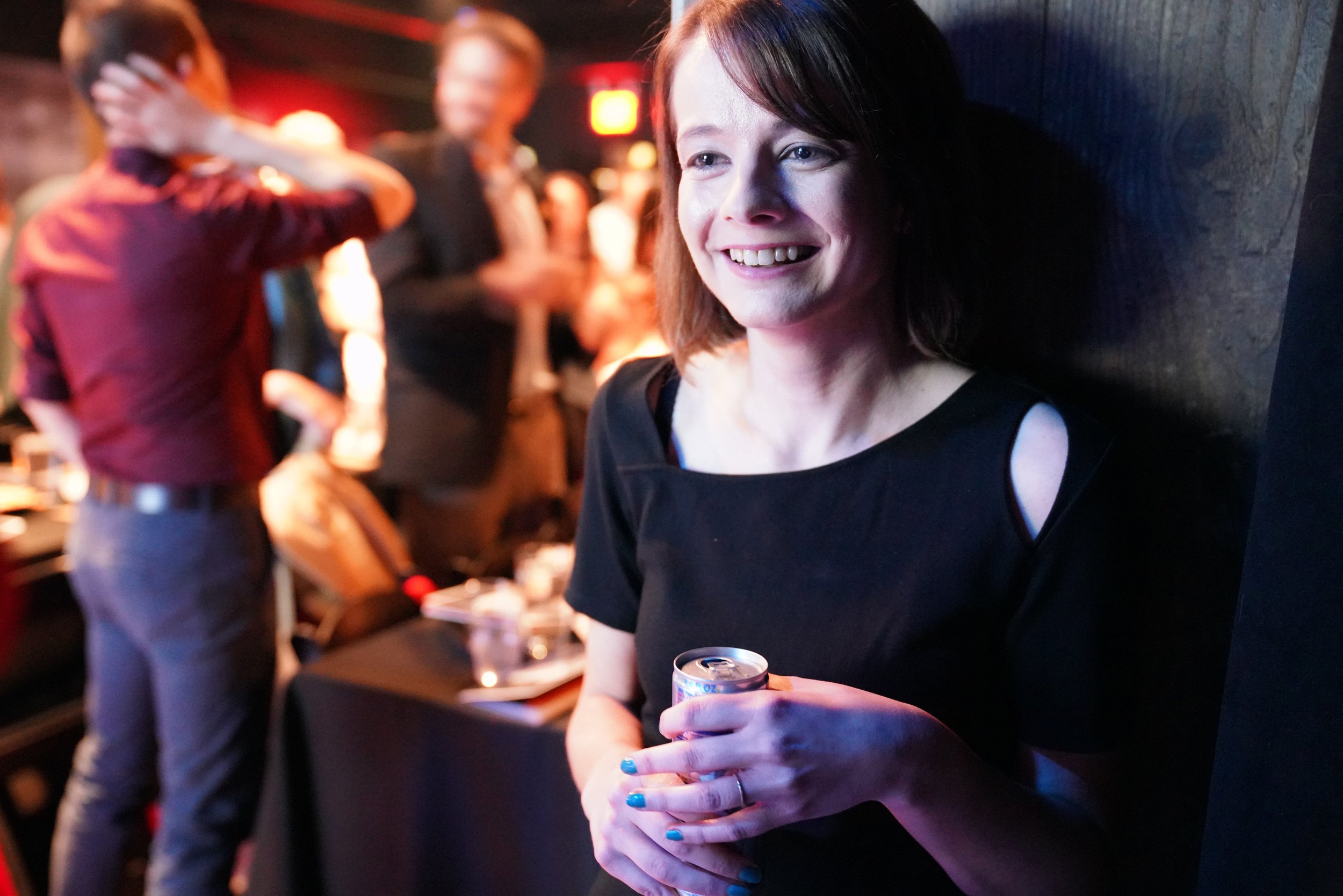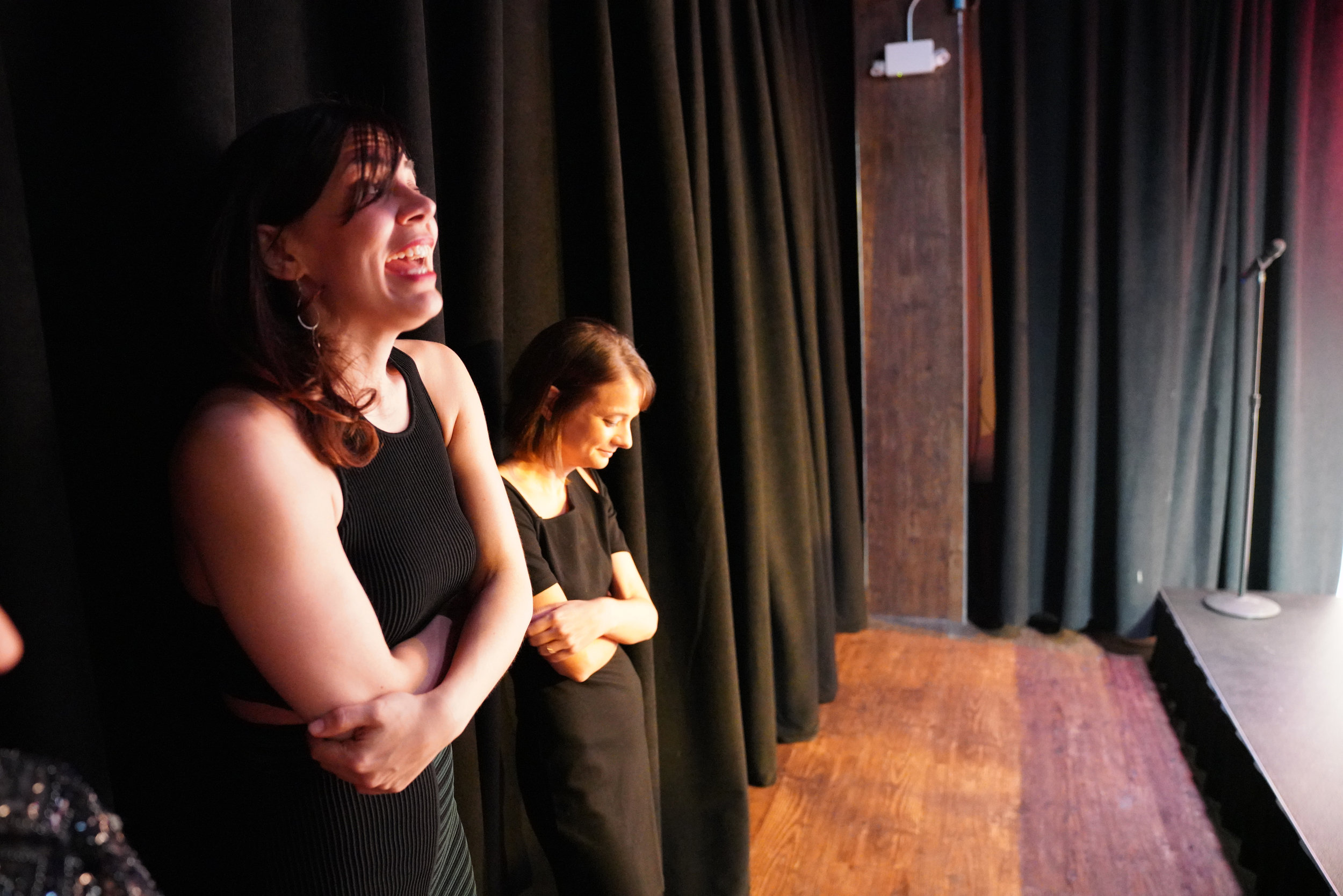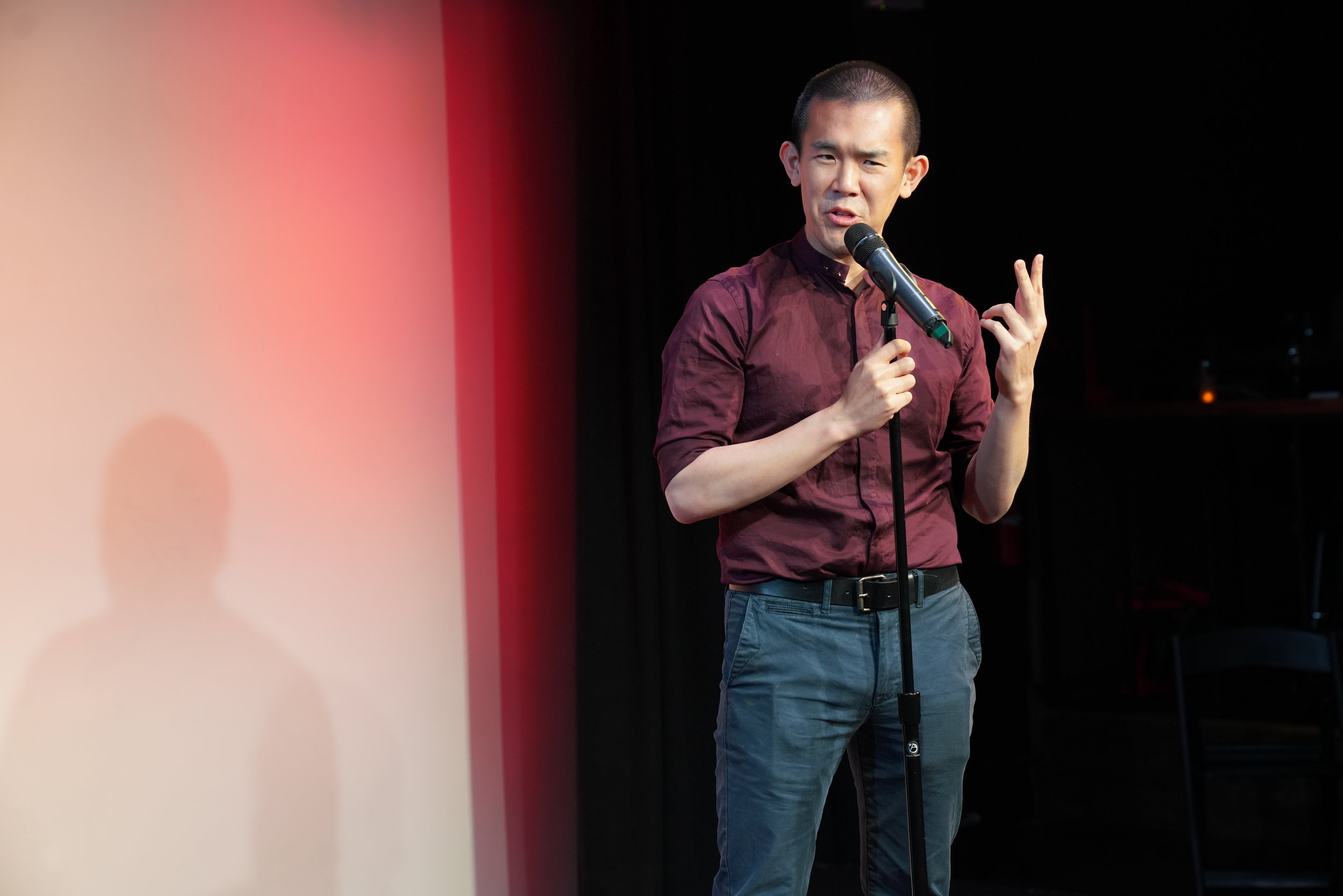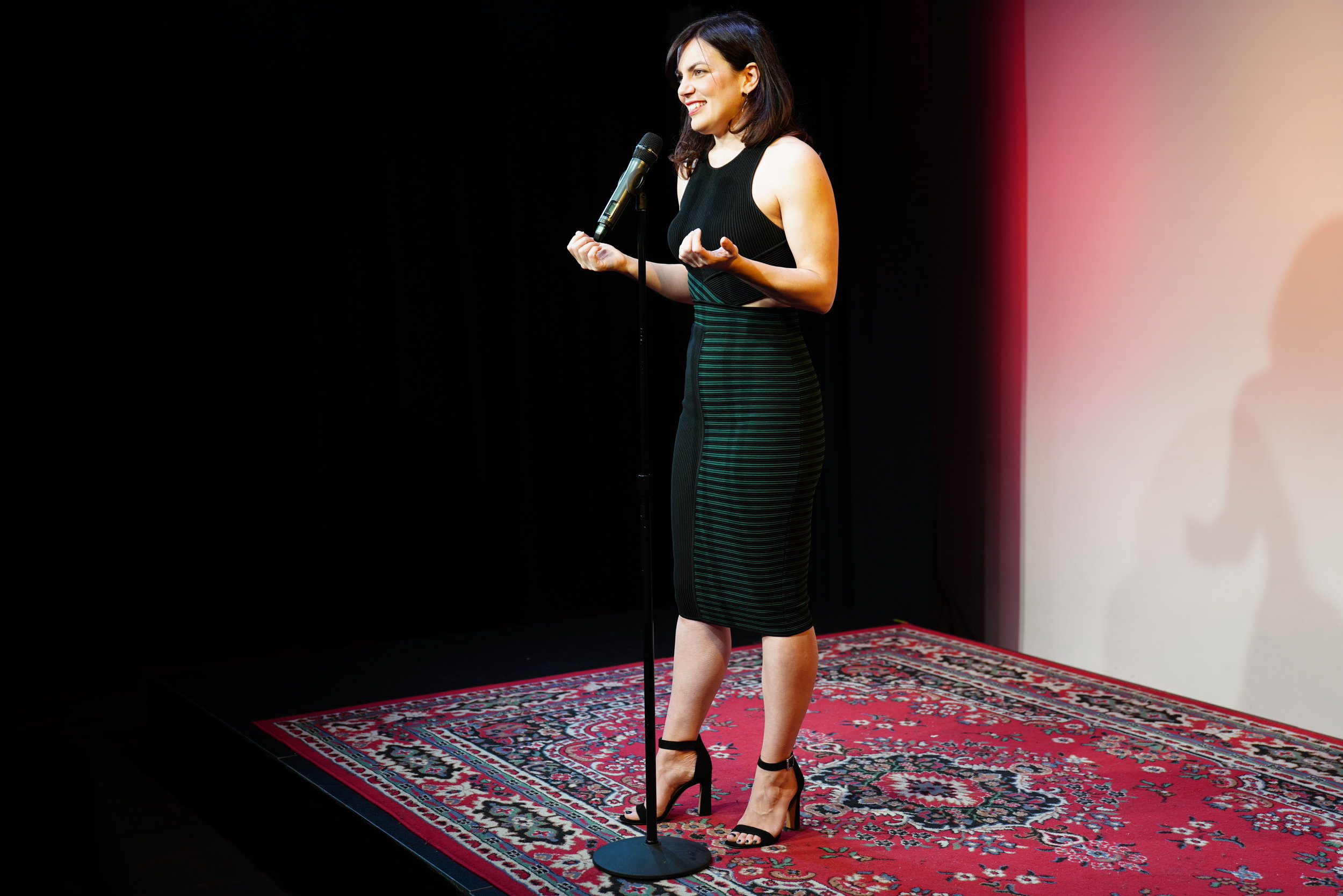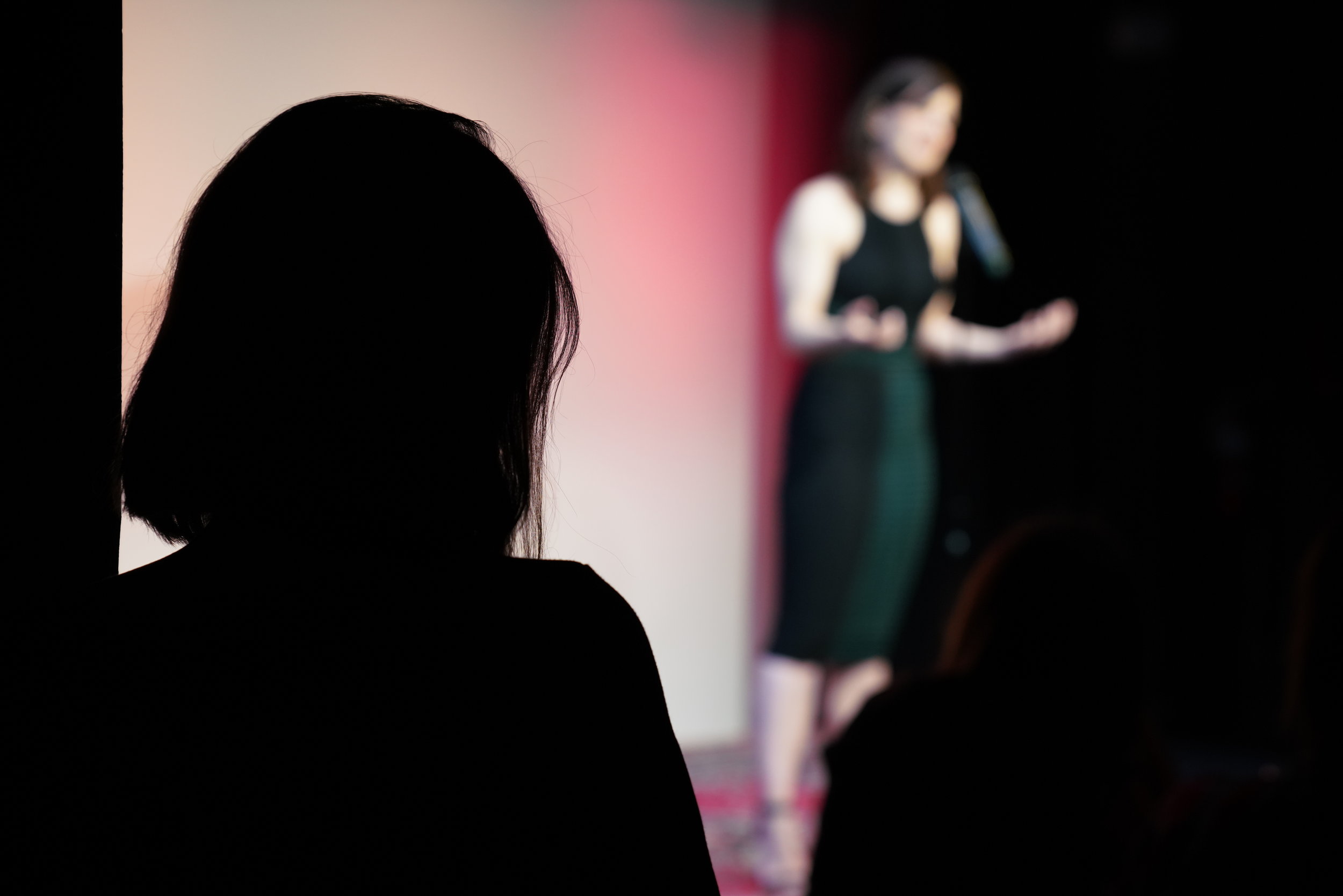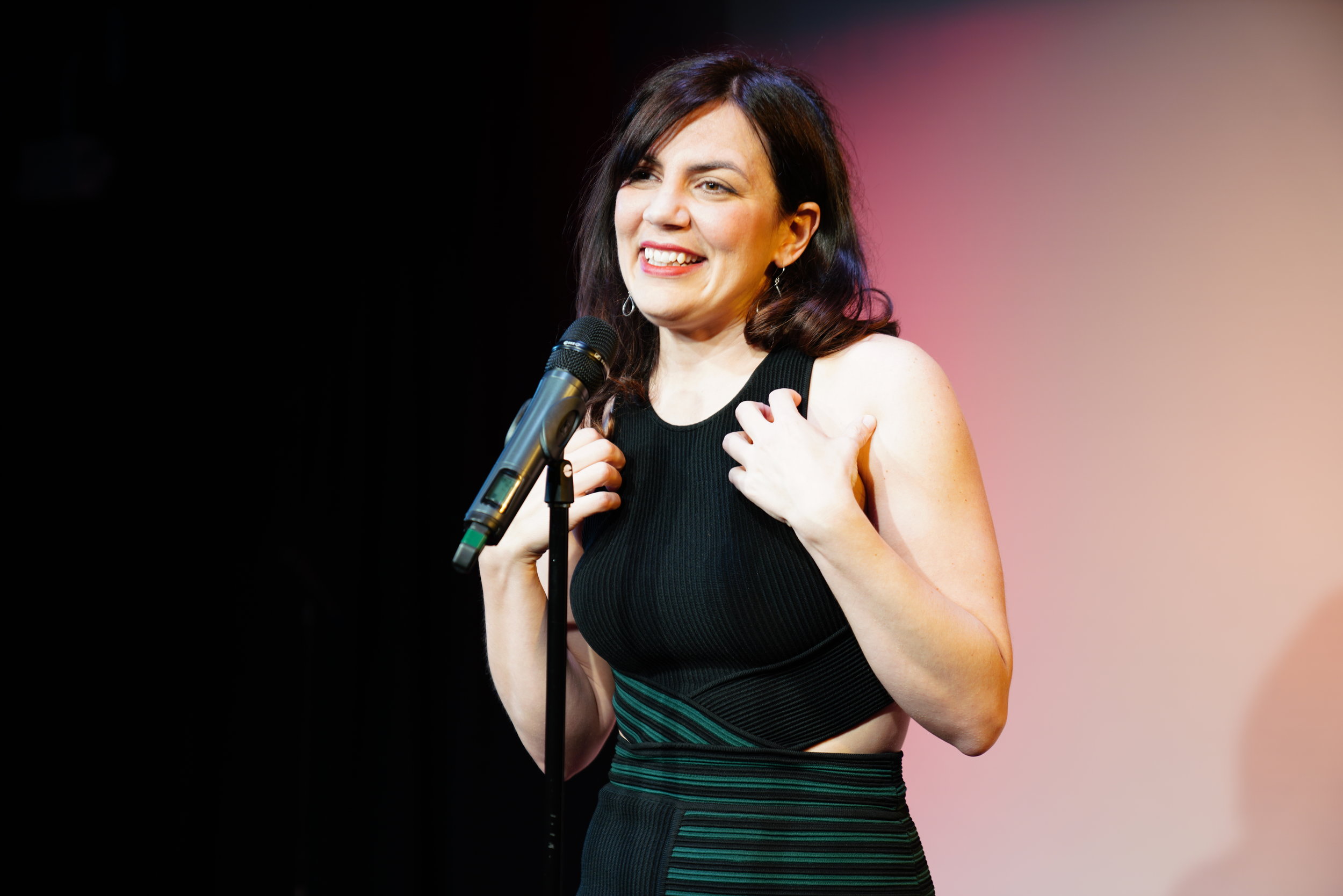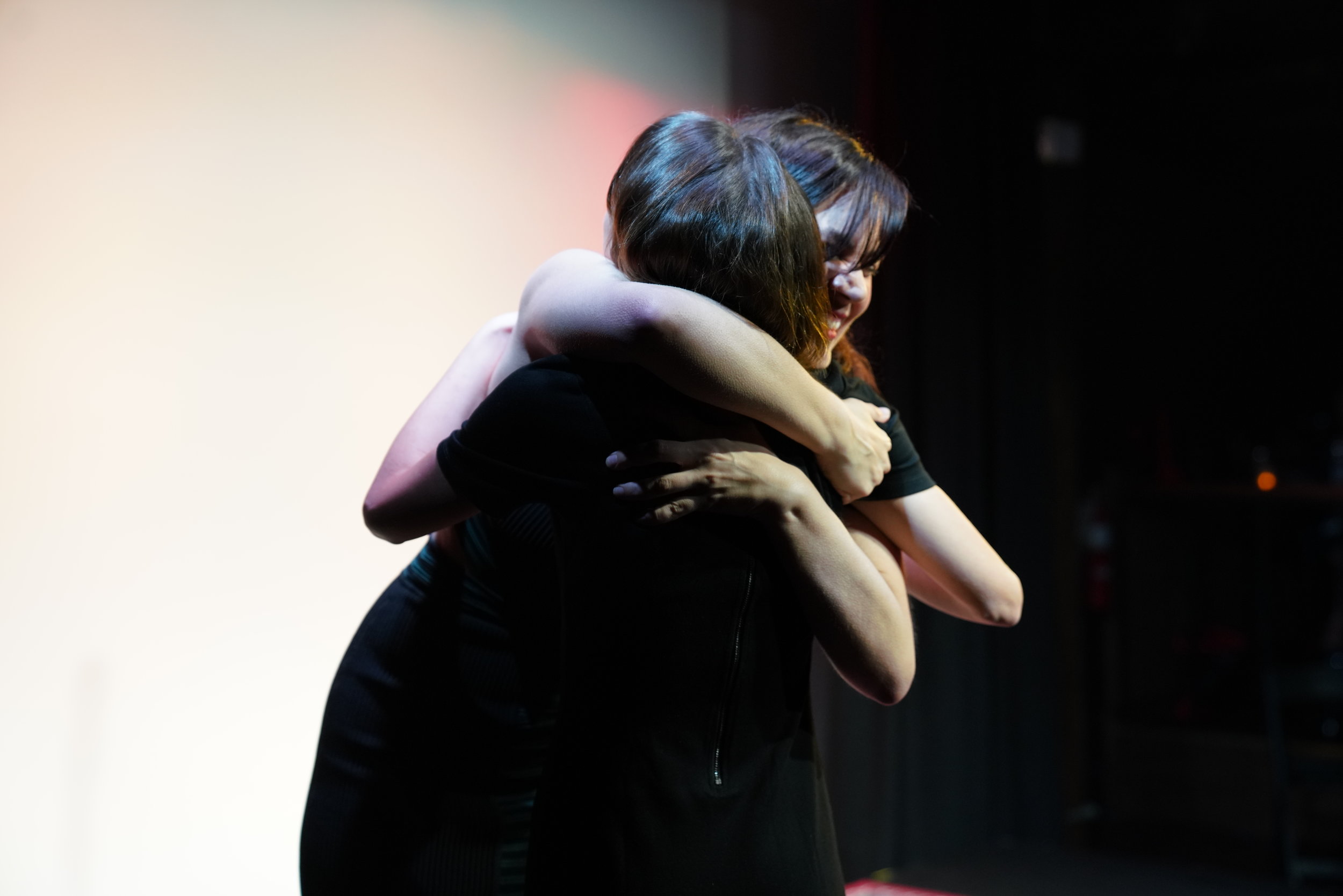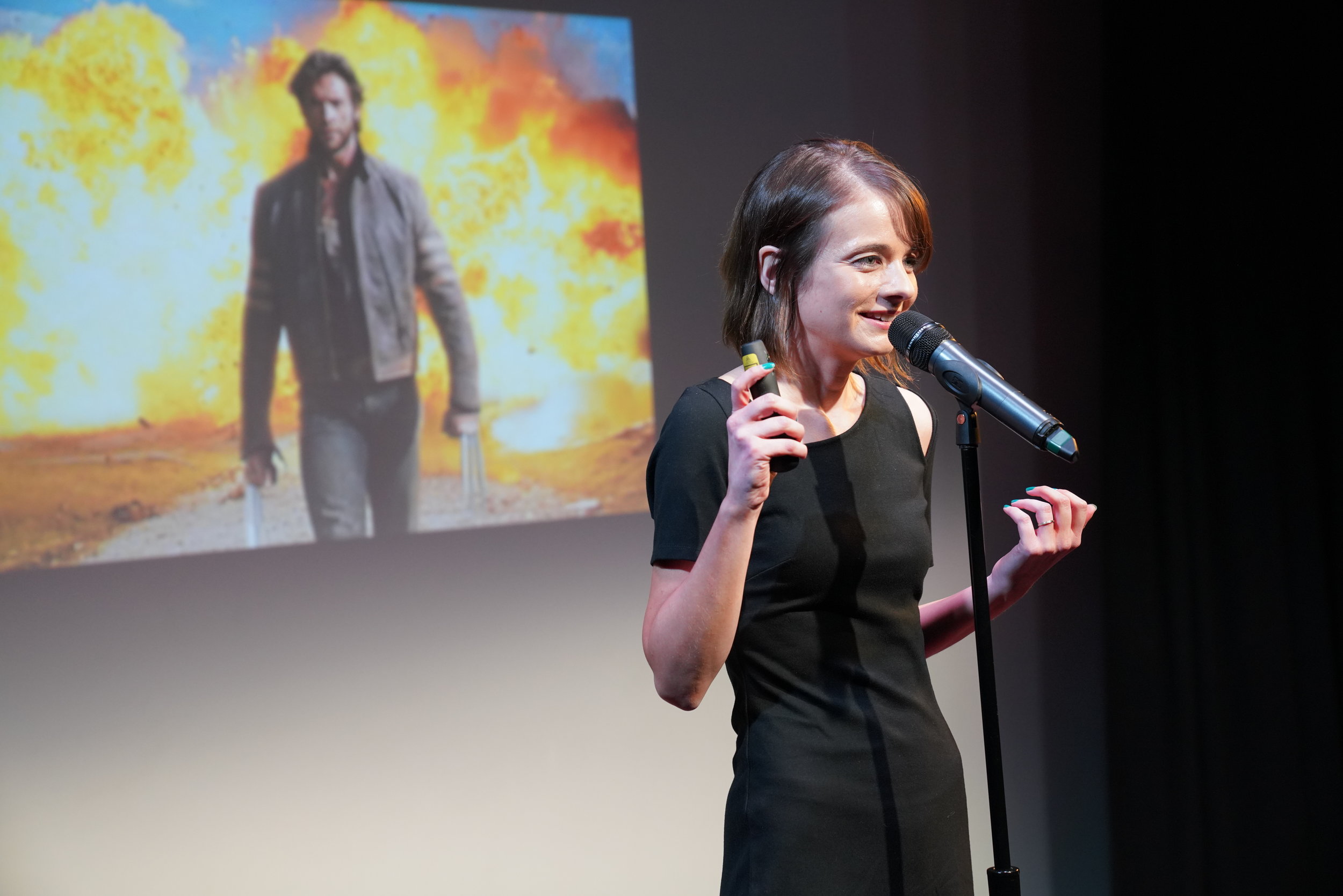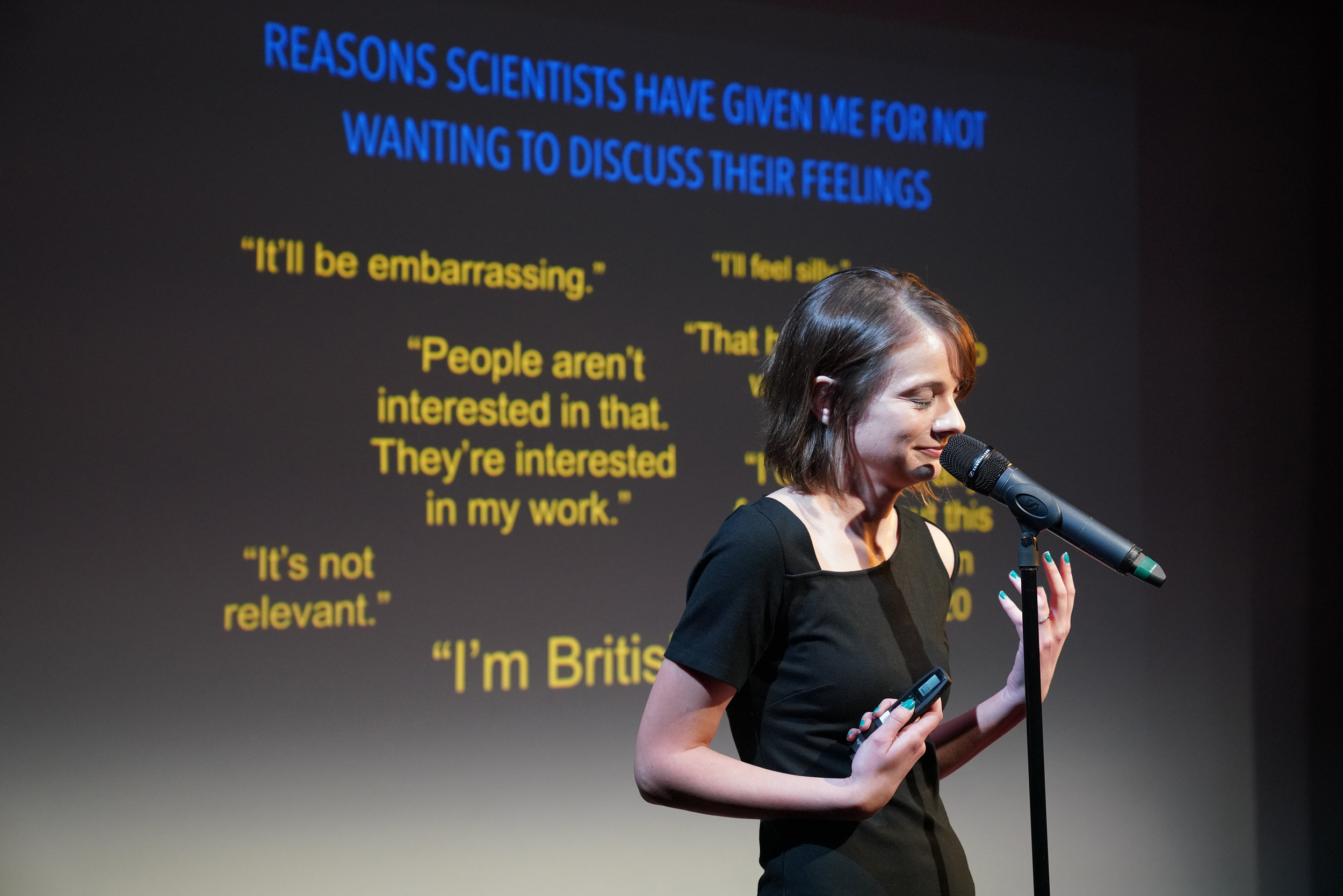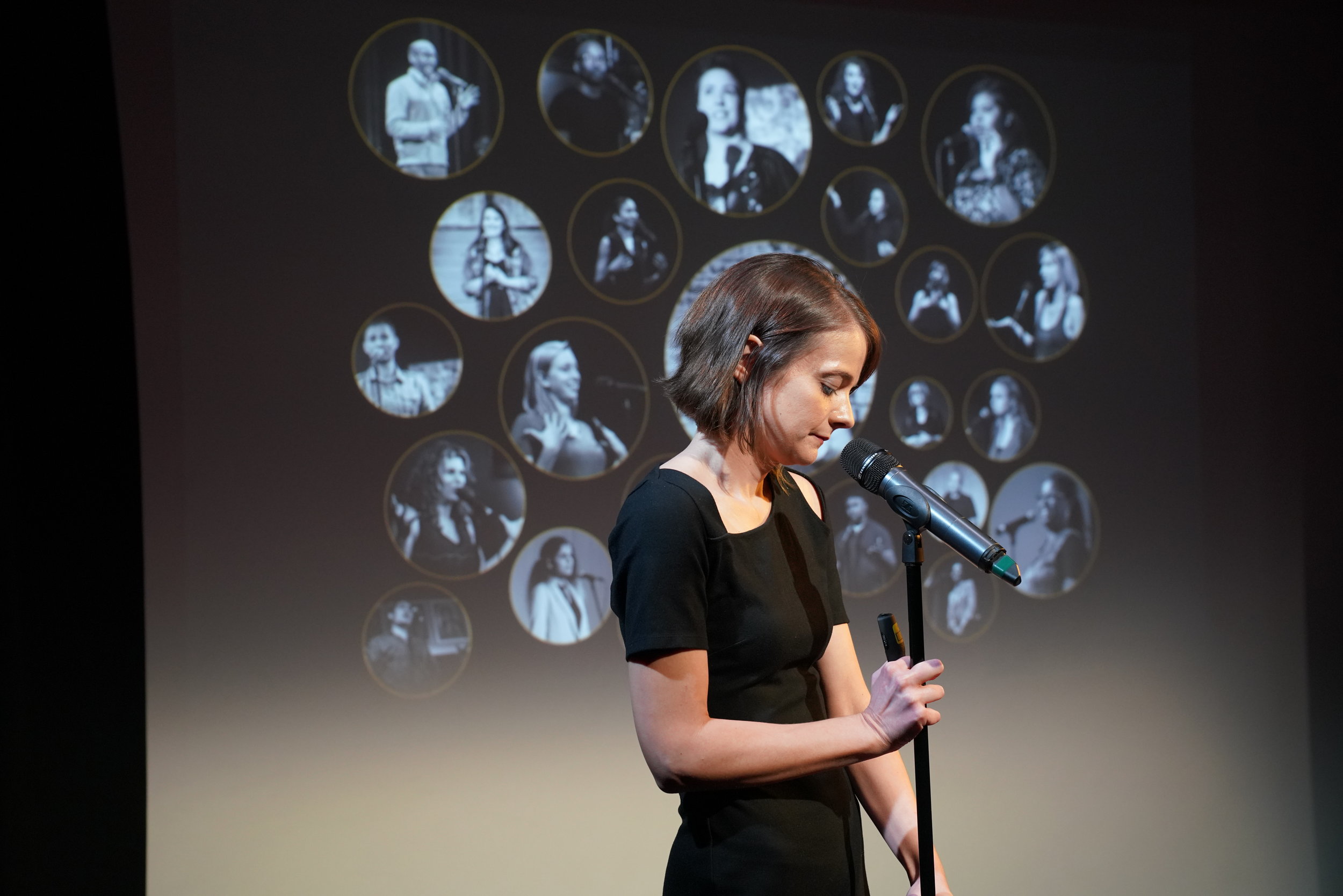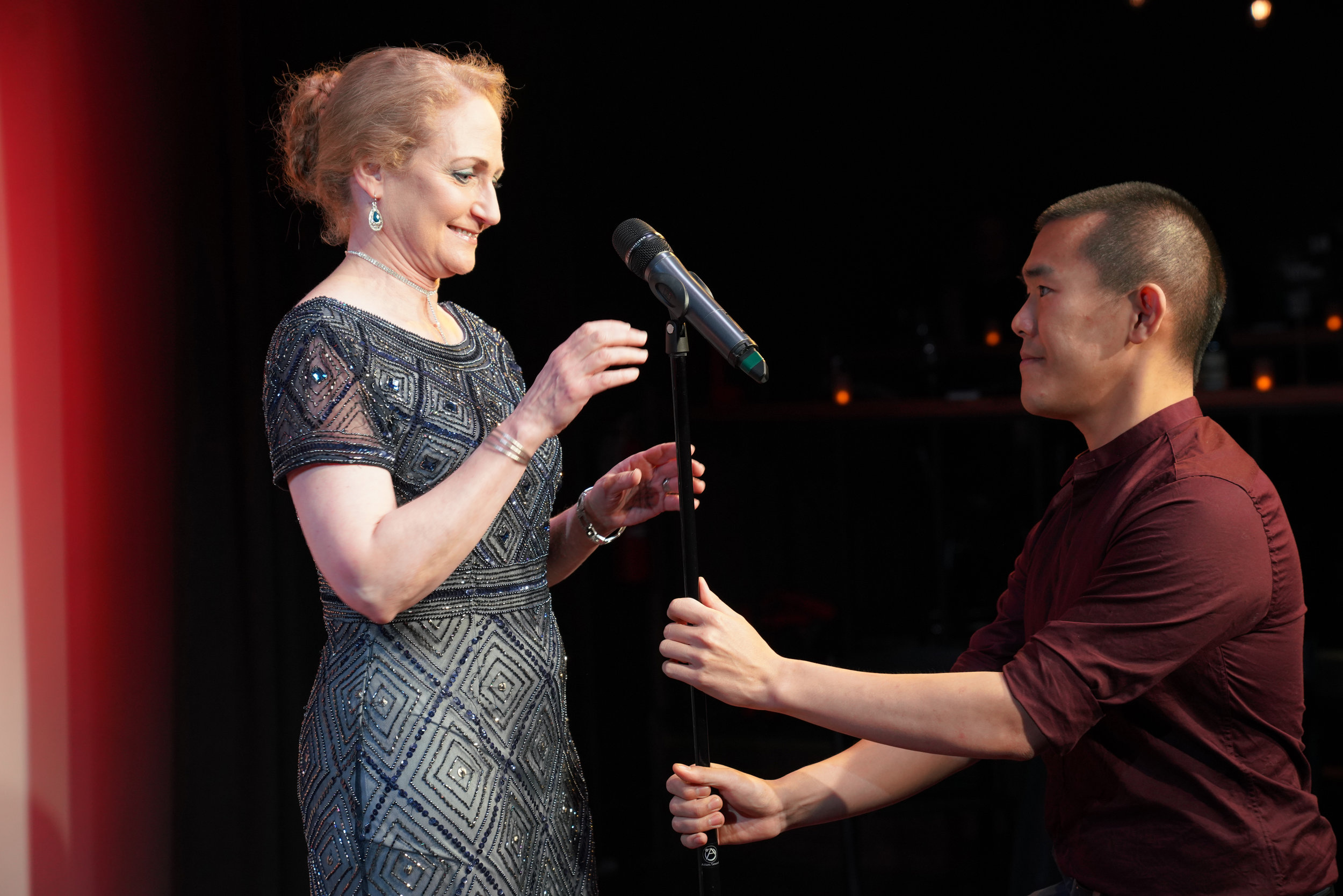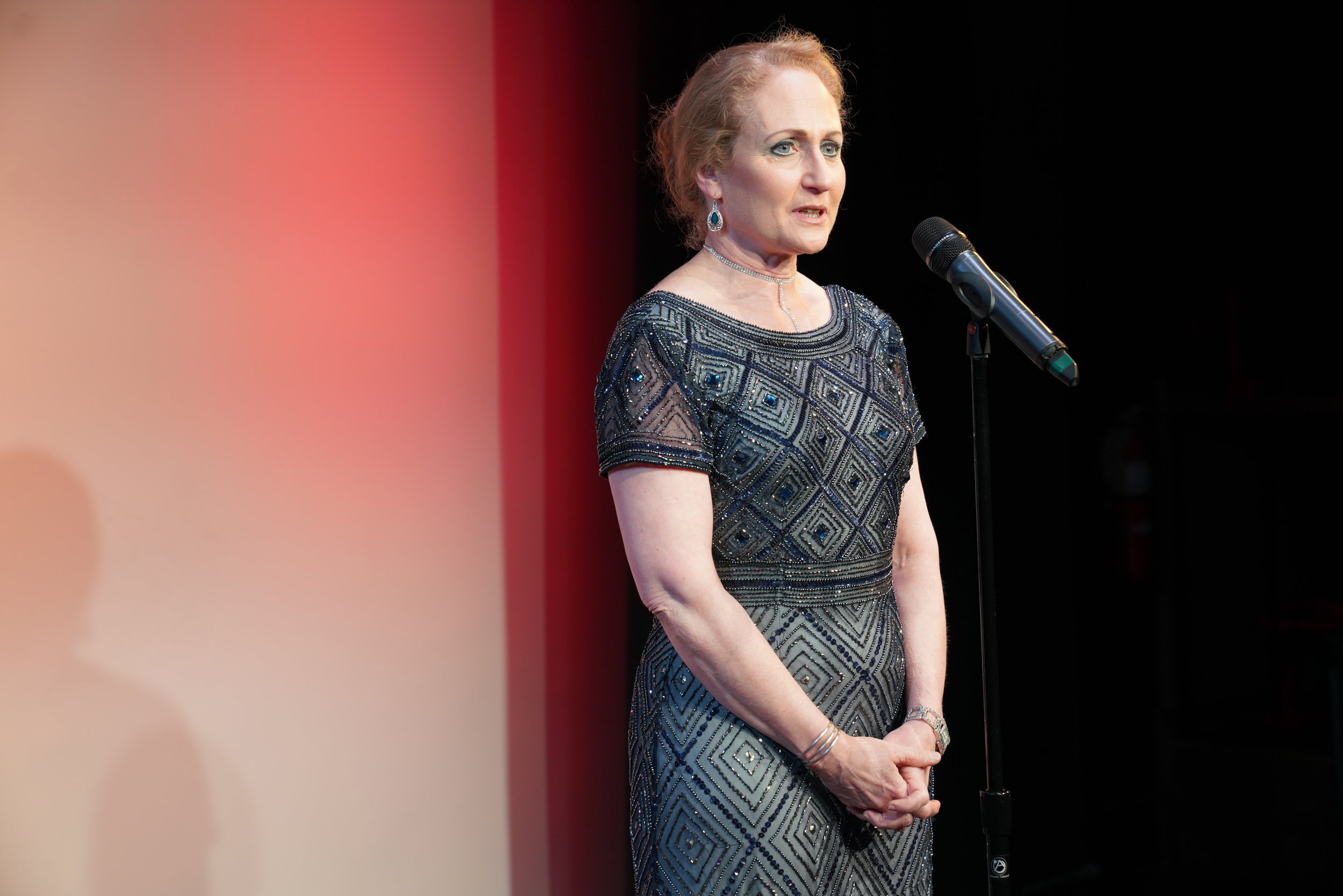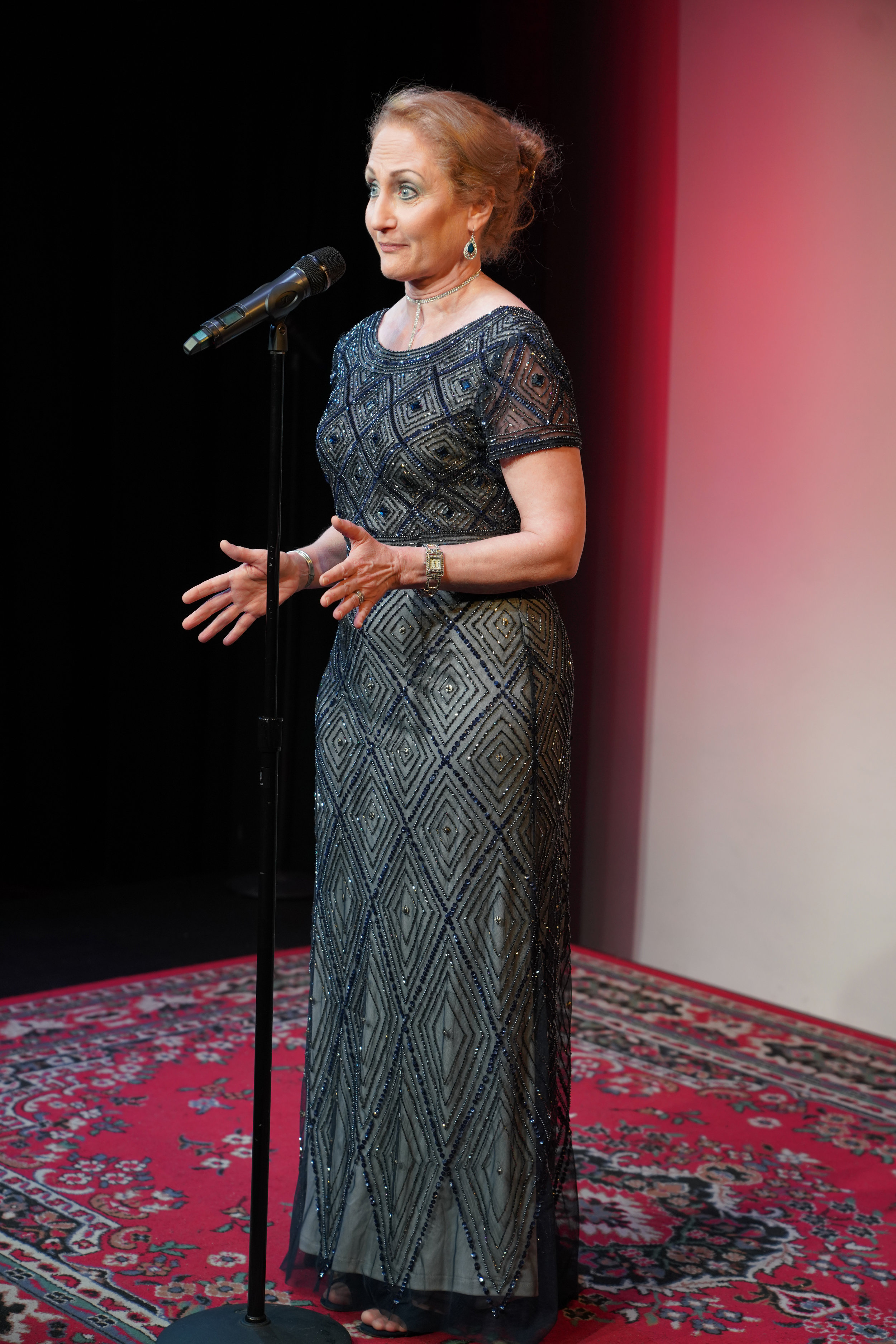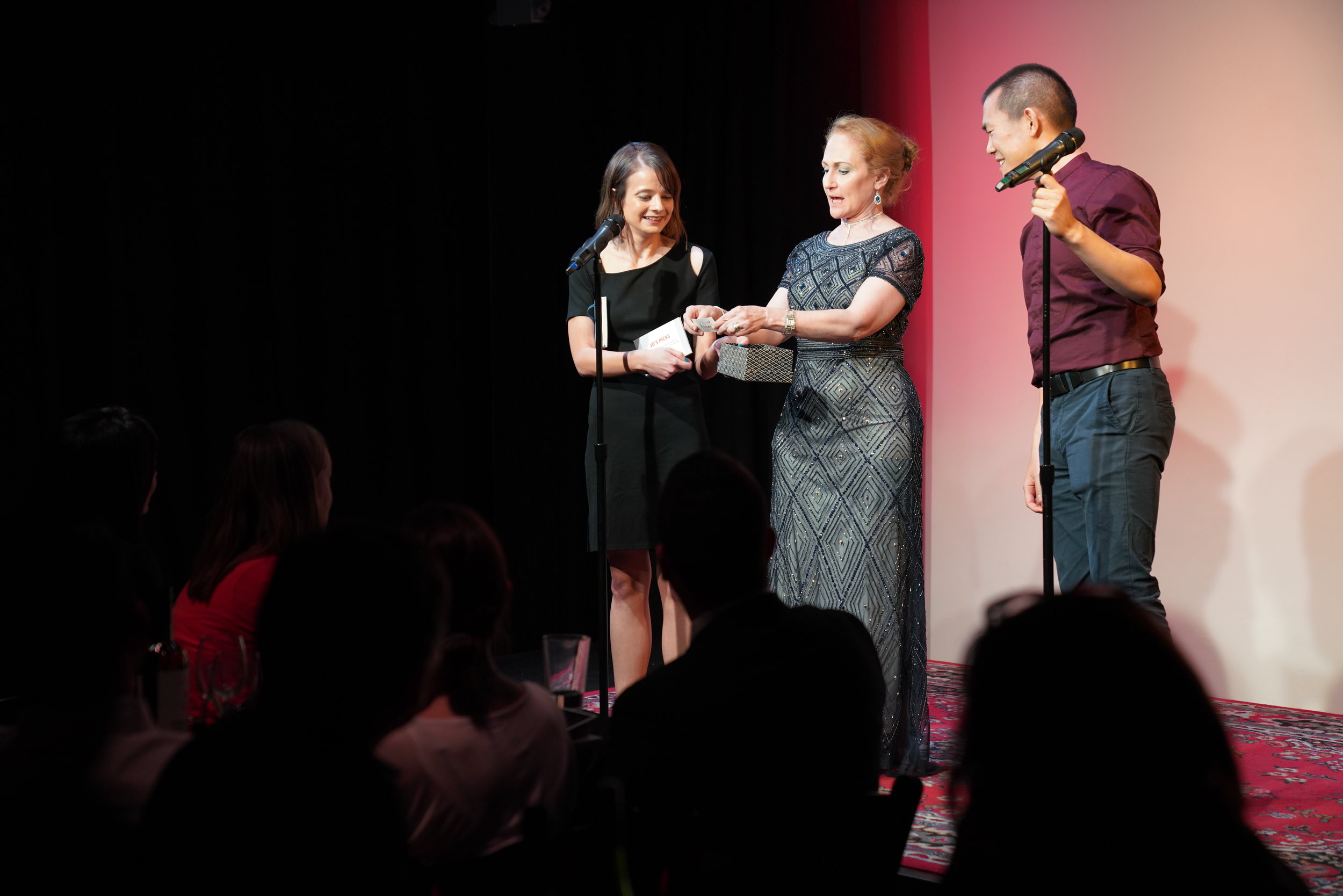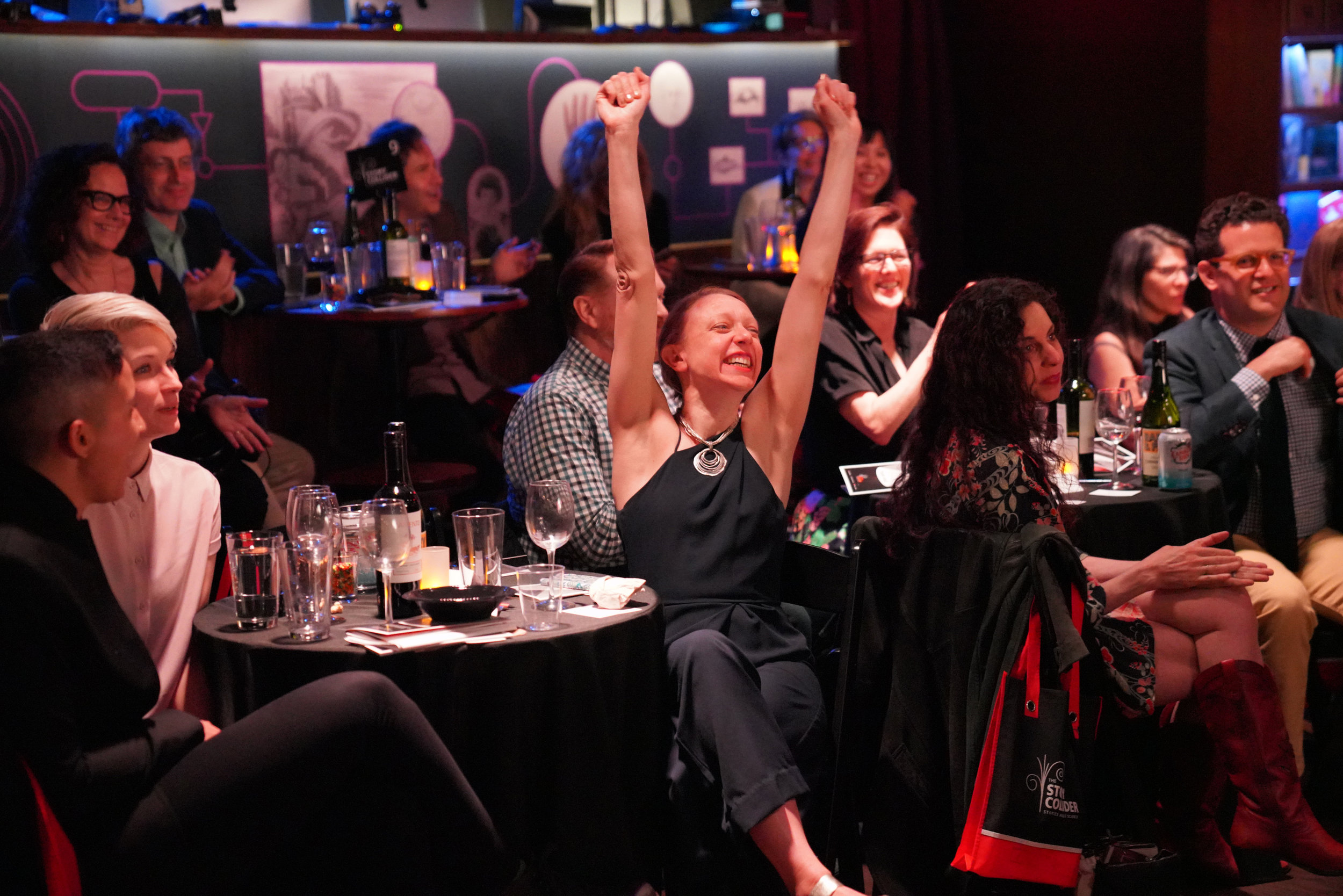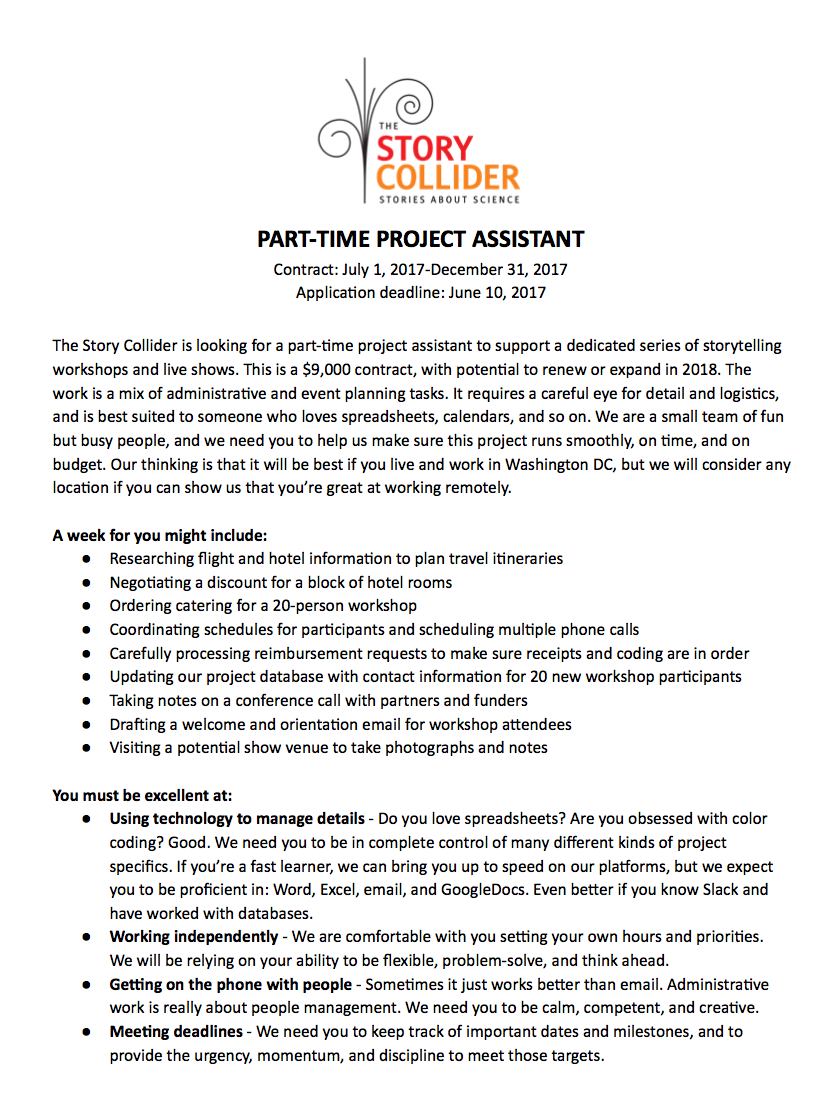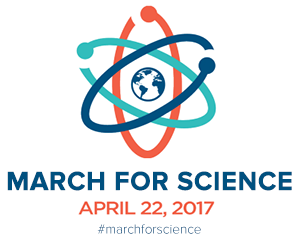As we come to the end of 2019, the Story Collider team is reflecting on the stories that have run on our podcast this year. This year, we produced 77 live shows, with more than 370 different stories. Out of those, 108 stories have made their way onto the podcast, in 54 episodes. Below, we’ve highlighted the stories that made us laugh, made us cry, and changed our lives in 2019!
The three stories that made us laugh the most in 2019
Devon Kodzis: “Freaky Little Frog Ears”
Devon shares her story with a full house at our debut show in Dallas this year.
In this story from our Nov. 1 episode, “Crush,” zoology student Devon Kodzis's strategy of attracting boys with fun animal facts proves difficult.
“I love this story because it’s just so relatable. Devon’s battle between being her true self and finding a partner isn’t just funny but poignant. Even while she’s regaling him with frog facts at the end, I’m present to just how wonderful it is to find someone who loves you just as you are.”
—Paula Croxson, New York senior producer
“This story genuinely made me laugh so hard and cry too. I felt like I was right there with her watching it all unfold. Its so honest and hilarious and moving.”
—Lindsay Cooper, operations manager
“This story made me both laugh and cry, but left me feeling nothing but joy!! I very much related to Devon’s animal facts. Sometimes it’s actually worked for me as a pick-up!”
—Kayla Glynn, Vancouver producer
Jenn Montooth: “House Baby?”
In this story from our Sept. 13 episode, “Secrets,” Jenn Montooth is accepted to graduate school just as she discovers she's pregnant.
“There's something incredibly powerful about being able to laugh and find joy in a story that is so often treated as an experience to be ashamed of. Jenn's ability to tell the story of her abortion in a way that had me laughing out loud so perfectly captured that power.”
—Maryam Zaringhalam, DC senior producer
“I still sometimes see a baby and think: ‘House baby!’”
—Nisse Greenberg, deputy director
“After listening to this story, I want to be Jenn's friend.”
—Skylar Bayer, roving producer
Chris Wade: “It Takes a Village”
In this story from our Aug. 30 episode, “Labor Day,” Chris Wade and his wife are determined to have a baby -- even if it means following some unconventional advice.
“Chris made me laugh, and also completely fall in love with his family during his story.”
—Skylar Bayer, roving producer
“Chris’s wife is the hero we need in this story.”
—Erin Barker, artistic director
Honorable mentions
The three stories that made us cry the most in 2019
Bhuvanesh Singh: “It’s Okay”
Bhuvanesh Singh shares his story at our show in partnership with Memorial Sloan Kettering.
In this story from our Aug. 23 episode, “Surgery,” surgeon Bhuvanesh Singh sees his patient back in the hospital months after what he thought was a successful surgery.
“As soon as he saw her again, re-admitted, I knew what was going to happen, and I just cried from then through the end of the story.”
—Liz Neeley, executive director
“The genuine care and emotion that Bhuvanesh feels for his patient, Alice, is inspiring to me.”
—Erin Barker, artistic director
Sarah Kaplan: “The Most Interesting Stories in the Universe”
In this story from ourSept. 27 episode, “On the Scene,” journalist Sarah Kaplan , who normally covers the science beat, takes on an assignment unlike any she's had before when tragedy strikes in Las Vegas,
“Sarah pours every piece of herself into her story. She embodies everything a journalist should be: skeptical, yet compassionate; perceptive, yet open-minded. Sarah's story reminds us that stories—and their tellings—are relationships, and they don't end.”
—Katherine J. Wu, Boston senior producer
“I cry every single time Sarah gets to the part of her story where the scientist explains: ‘The neutrino isn't the lucky one. We are.’ She so beautifully captures the power of bearing witness to the stories and experiences of others.”
—Maryam Zaringhalam, DC senior producer
Audrey Kearns: “Fighting a Dragon”
In this story from the second installment of our Mental Health series, Audrey Kearns' big opportunity to appear as a panelist at a "nerd-convention" turns disastrous when she has an unexpected reaction to a new antidepressant.
“Hearing the pain in Audrey's voice as she finds out what happened when she had a bad reaction to anti-depressants makes me cry every time. That shame breaks my heart.”
—Misha Gajewski, Toronto senior producer
“Audrey's story taps into a fear I think most of us have -- of not having any control over our own body. I also think one of the things that touched me most in this story is Audrey's ability to show her husband's love of her through Audrey's own eyes. Absolutely beautiful and also I required a lot of tissues during this story.”
—Skylar Bayer, roving producer
“Audrey’s bravery in telling this story takes my breath away.”
—Paula Croxson, New York senior producer
Honorable mentions
The three stories that changed our lives in 2019
C. Brandon Ogbunu: “Friends and Enemies”
Brandon Ogbunu shares his story at our show at the 2019 Evolution Meeting.
In this story from our Dec. 6 episode, “Justice,” geneticist C. Brandon Ogbunu contemplates the role race has played in his academic career after he is confronted by the police.
“This story didn't make me cry the most (that one goes to Bhuvanesh), but made me weird-cry...that's the feeling of "OMG THIS STORY IS SO DEEP, WELL-TOLD, BEAUTIFUL, UGLY, COMPLICATED, SATISFACTORY THAT I DON'T KNOW WHAT ELSE TO DO BUT TO CRY".
—Reyhaneh Maktoufi, Chicago producer
“Brandon's story is one that will stick with me for years—probably decades—to come. It's a powerful lesson on the ways identities intersect, and how inclusiveness in science still has such a long way to go.”
—Katherine J. Wu, Boston senior producer
Latasha Wright: “Strong as a Horse”
In this story from our Feb. 22 episode, “Inspiration,” Latasha Wright gets a fateful call just before she leaves for her dream opportunity to teach marine science on the Red Sea.
“There is one specific moment in Latasha's story that comes to my mind all the time — when she says she didn't want comfort after her dad died, she wanted it to go back to normal. That always hits me.”
—Nisse Greenberg, deputy director
“It was such a gift Latasha gave to share this part of her life.”
—Lindsay Cooper, operations manager
Tricia Hersey: “A Tool for Liberation”
In this story from our April 5 episode, “Peace,” Tricia Hersey, who’s overwhelmed by setbacks as she pursues her academic ambitions, discovers an unexpected solution to her stress.
“Not only was it a delight to produce this story and witness her journey, but I feel moved by her mission and message: rest as resistance.”
—Kellie Vinal, Atlanta producer
“I'm someone who feels like I should be in constant motion, always hustling. Listening to Tricia's story made me feel like I actually had permission to slow down, listen to my body, and, yes, take a nap when I need it!”
—Maryam Zaringhalam, DC senior producer
Honorable mentions
Other favorites
Meltem Alemdar: “The Most American of Stories”
In this story, from our March 29 episode, “New Places,” social scientist Meltem Alemdar leaves her home in Turkey to pursue her education in the US and struggles to find her identity.
“Not only was it great to work with Meltem on this story, I think it captures so much of the immigrant experience in the US — the challenge of walking the line between holding on to cultural identity and wanting to assimilate into your new home…It's made me much more sensitive about what she's experienced, what my husband and parents have experienced, and so many other immigrants that I encounter day to day.”
—Meisa Salaita, Atlanta producer
Skylar Bayer: “My Friend Andy”
In this story from our April 12 episode, “Limelight,” marine biologist Skylar Bayer finds an unexpected collaborator and friend in the fisherman helping her get scallops.
“This is one of my favorite Story Collider stories of all time — the way it speaks to the cultural divide between scientists and some of the folks they end up working with, and the fact that that divide can be bridged by the power of friendship. Plus, The Colbert Report makes an appearance!”
—Erin Barker, artistic director
Emily Yarrison: “No Ward for Sad Ladies”
In this story, from the May 17 installment of our Mental Health series, Emily Yarrison survives her suicide attempt and has to ask herself a whole new set of questions.
“I loved our entire Mental Health series, but Emily’s story stands out to me because she somehow manages to be incredibly funny and charming in a story about surviving suicide. Thank you, Emily!”
—Erin Barker, artistic director










